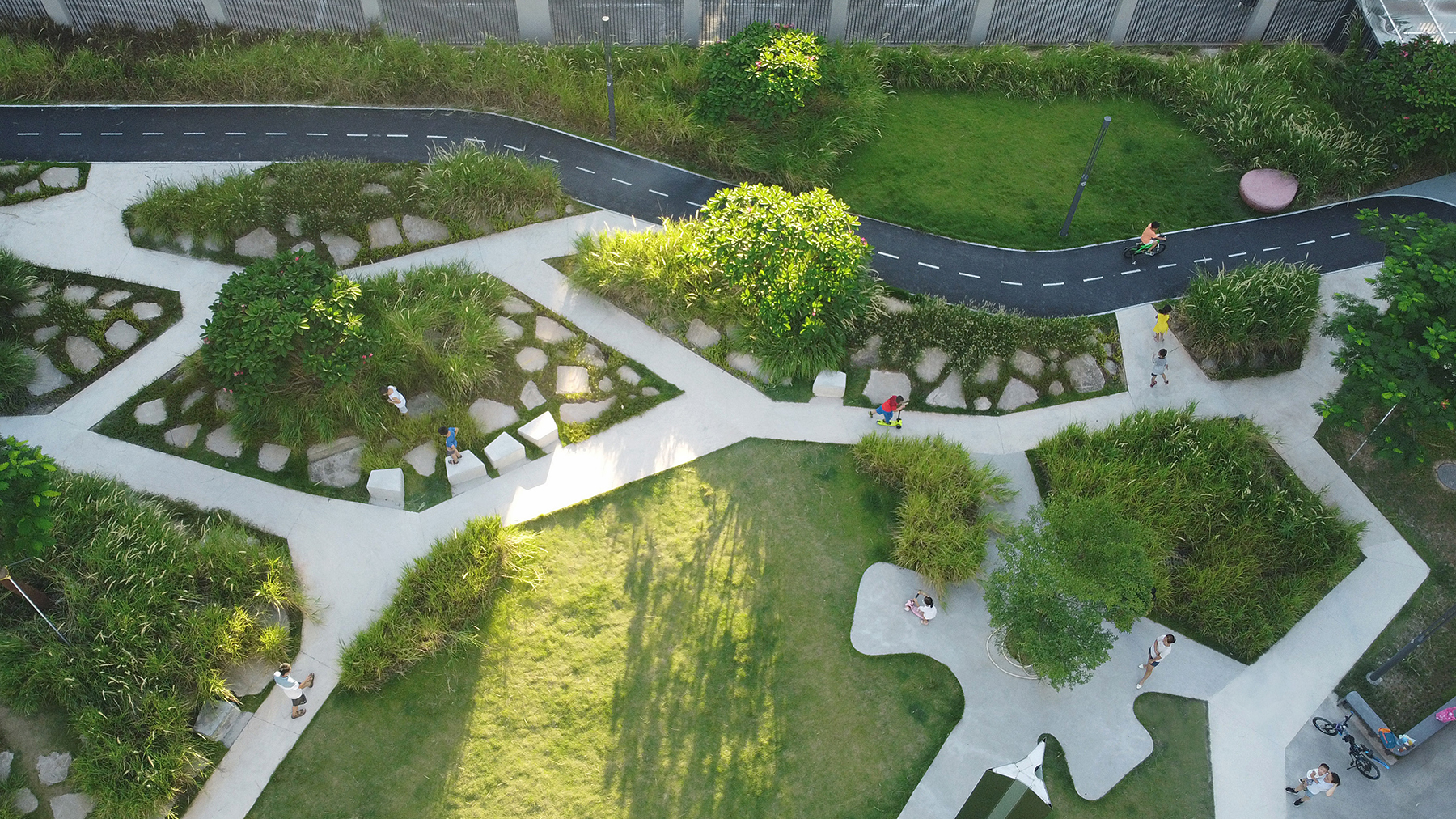
设计单位 自组空间
项目地点 广东深圳
建成时间 2020年1月
项目面积 4674.35平方米
▲ 项目视频 ©自组空间
空置二十年的土地
梅林片区地处福田区的北面,也是“背面”,城中村、老旧住宅和工业区等混为一体,城市建筑老化,空间品质不高,形成了大量的“城市盲区”。
The Meilin area is located in the north of Futian District and is also the "backside". It is mainly mixed with functions such as urban villages, old houses and industrial areas. The urban buildings are aging and the spatial quality is not high, forming a large number of "urban blind spots".
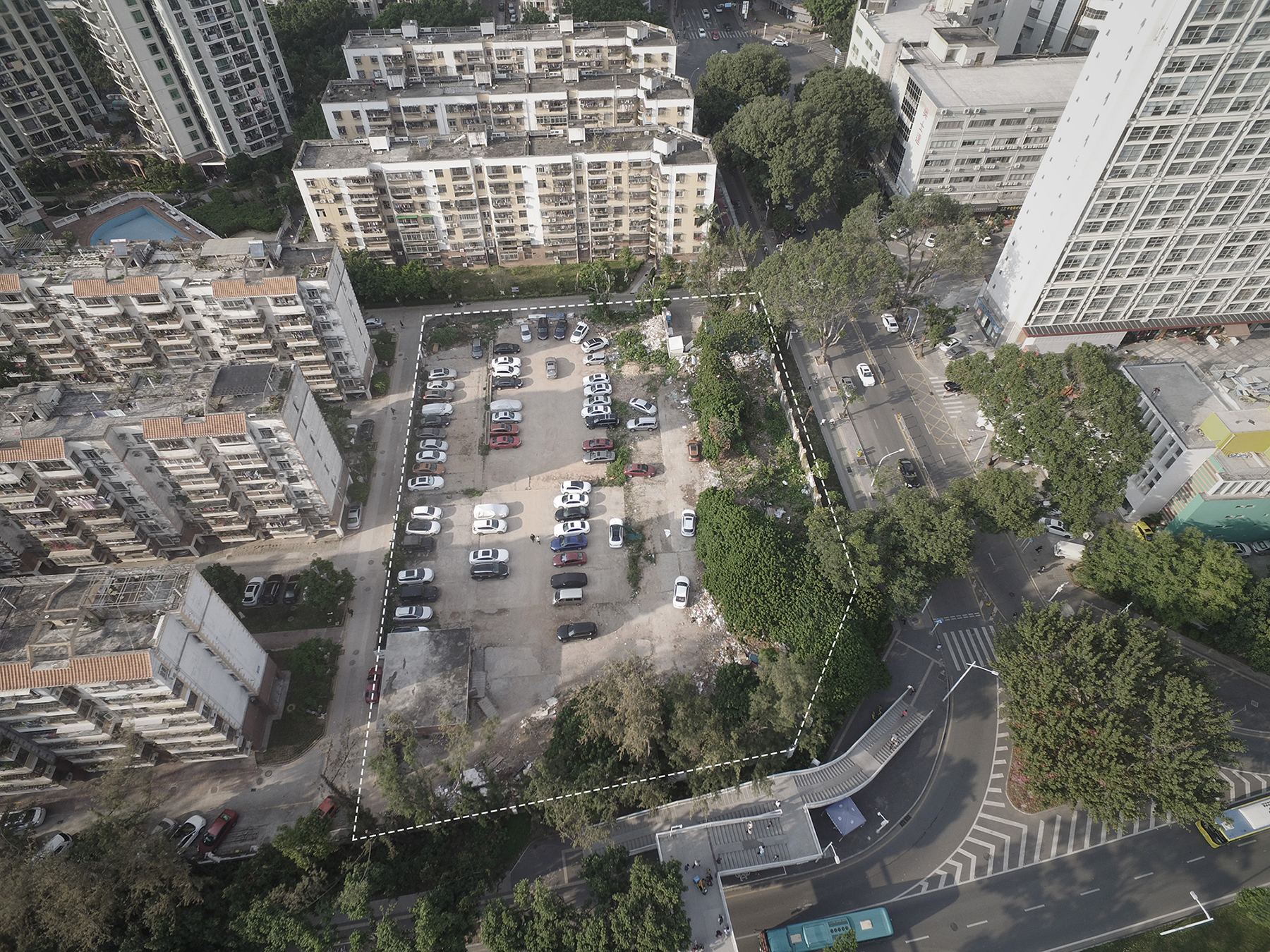
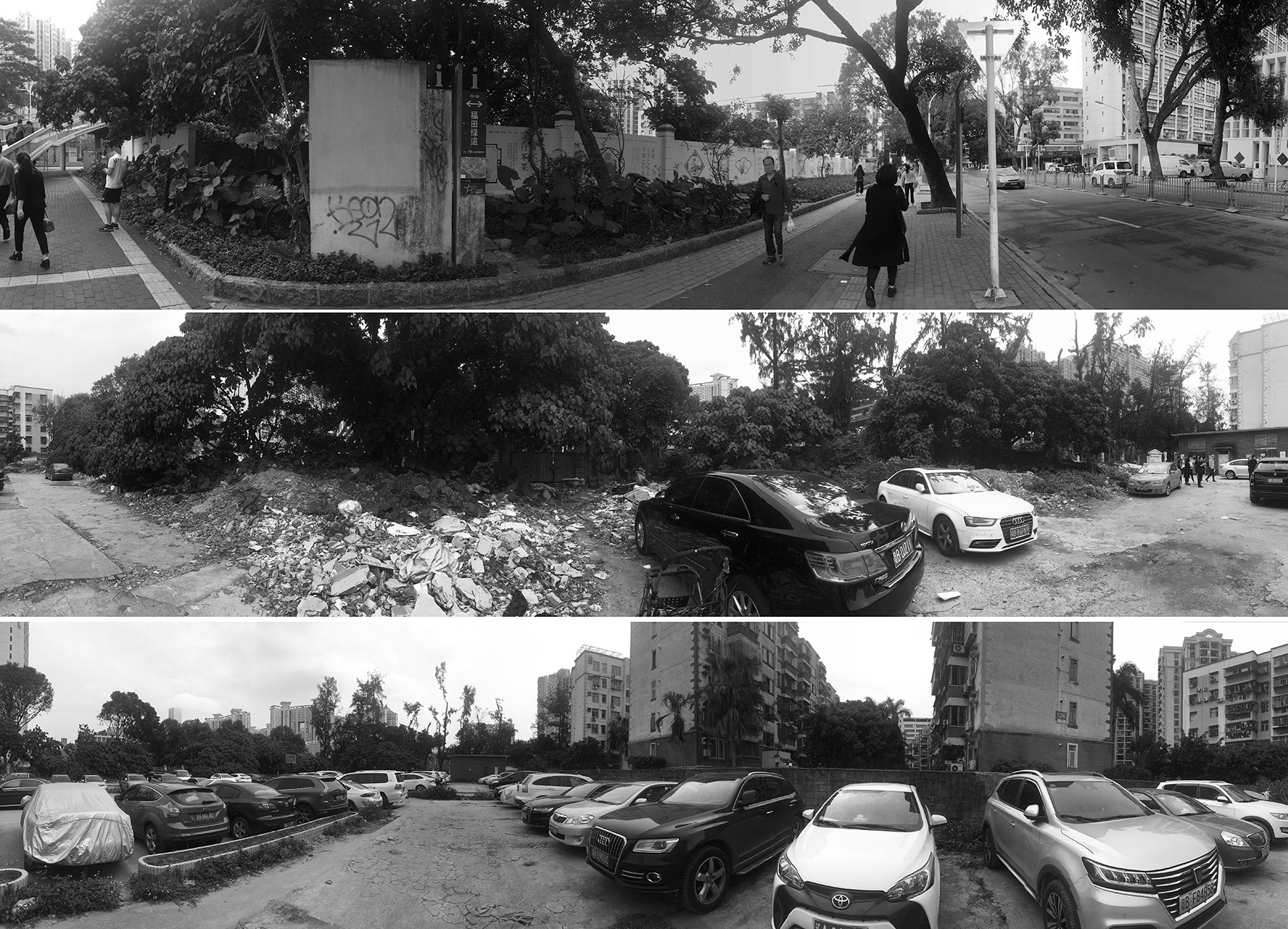
梅丰社区创意公园位于福田区中康路和北环路交汇处,占地面积为4674.35平方米。由于业主与开发商间的纠纷,这处地块就被闲置了近20年。
Meifeng Community Creative Park is located at the intersection of Zhongkang Road and Beihuan Road in Futian District. It covers an area of 4,674.35 square meters. Due to disputes between the owner and the developer, the land has been idle for nearly 20 years.
2019年3月,梅林街道委托深圳市城市设计促进中心发起 “小美赛城市微设计·梅林行动”竞赛,自组空间获得本次竞赛一等奖,并作为设计方全程参与公园的设计与施工跟进。
In March 2019, the Shenzhen Urban Design Promotion Center was commissioned by Meilin Street to launch the "Xiaomeisai Urban Micro Design·Melin Action" competition, Shenzhen Self-organized Space won the first prize of this competition, and participated in the design and construction of the park as the designer.
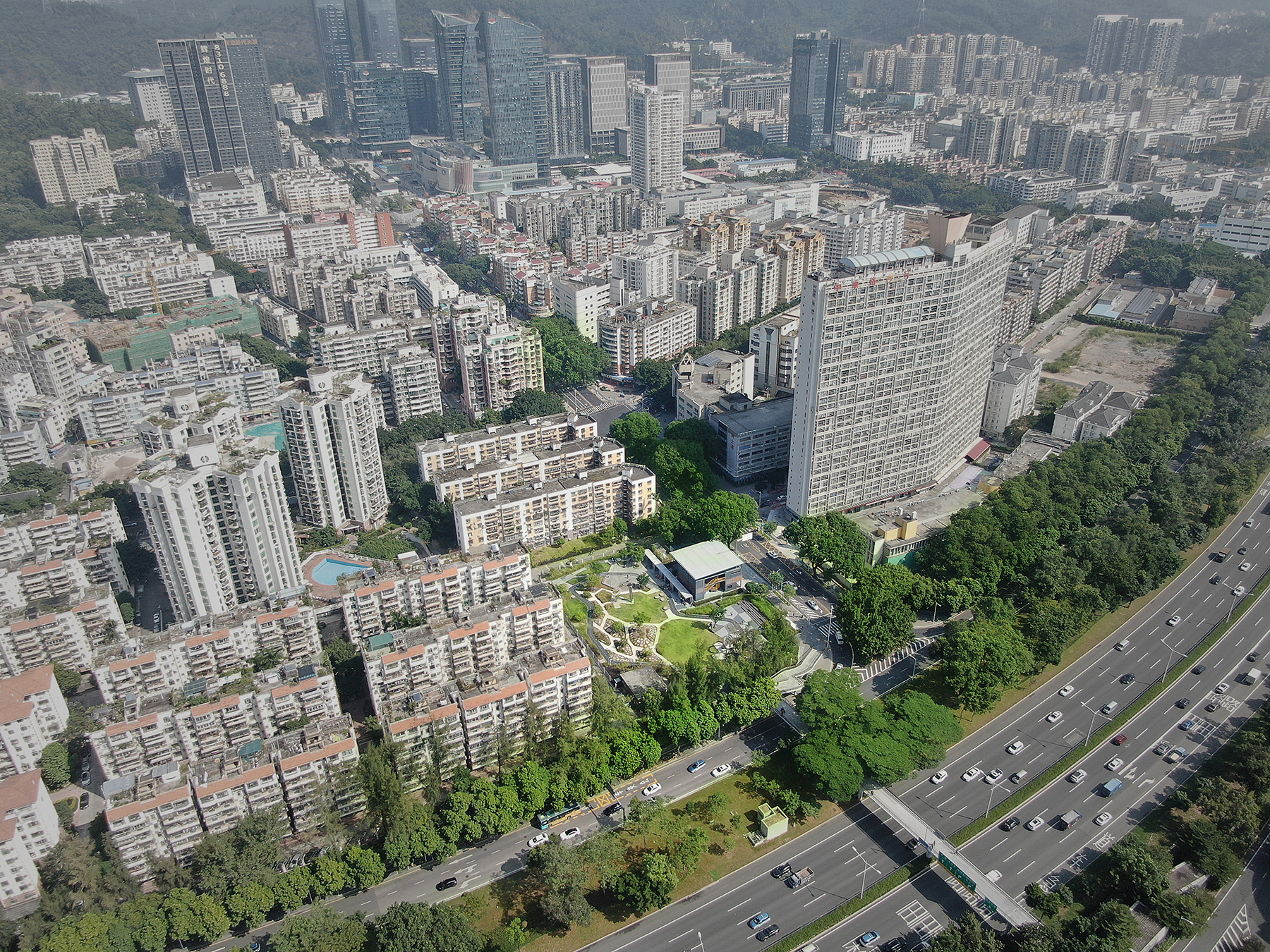
场地概况
原始场地为空置的钢筋水泥地面,四面被围墙围合,与周边地块存在一定高差,内部被人占用为临时停车场。由于长期的空置加上缺乏管理,部分区域已成为了垃圾堆放的场所,场地四周杂草丛生、环境恶劣,与一墙之外的邻里社区及城市道路形成鲜明的对比,在高密度的梅林片区,这样一个废弃地块与周围环境显得格格不入。
The current site is a vacant reinforced concrete floor, surrounded by walls on all sides, and there is a certain height difference with the surrounding land. The interior is occupied as a temporary parking lot. Due to long-term vacancy and lack of management, some areas have become garbage dumps. The weeds around the site and the harsh environment are in sharp contrast with the neighborhood communities and urban roads beyond one wall. In the high-density Meilin area, Such an abandoned plot is even more incompatible with the surrounding environment.
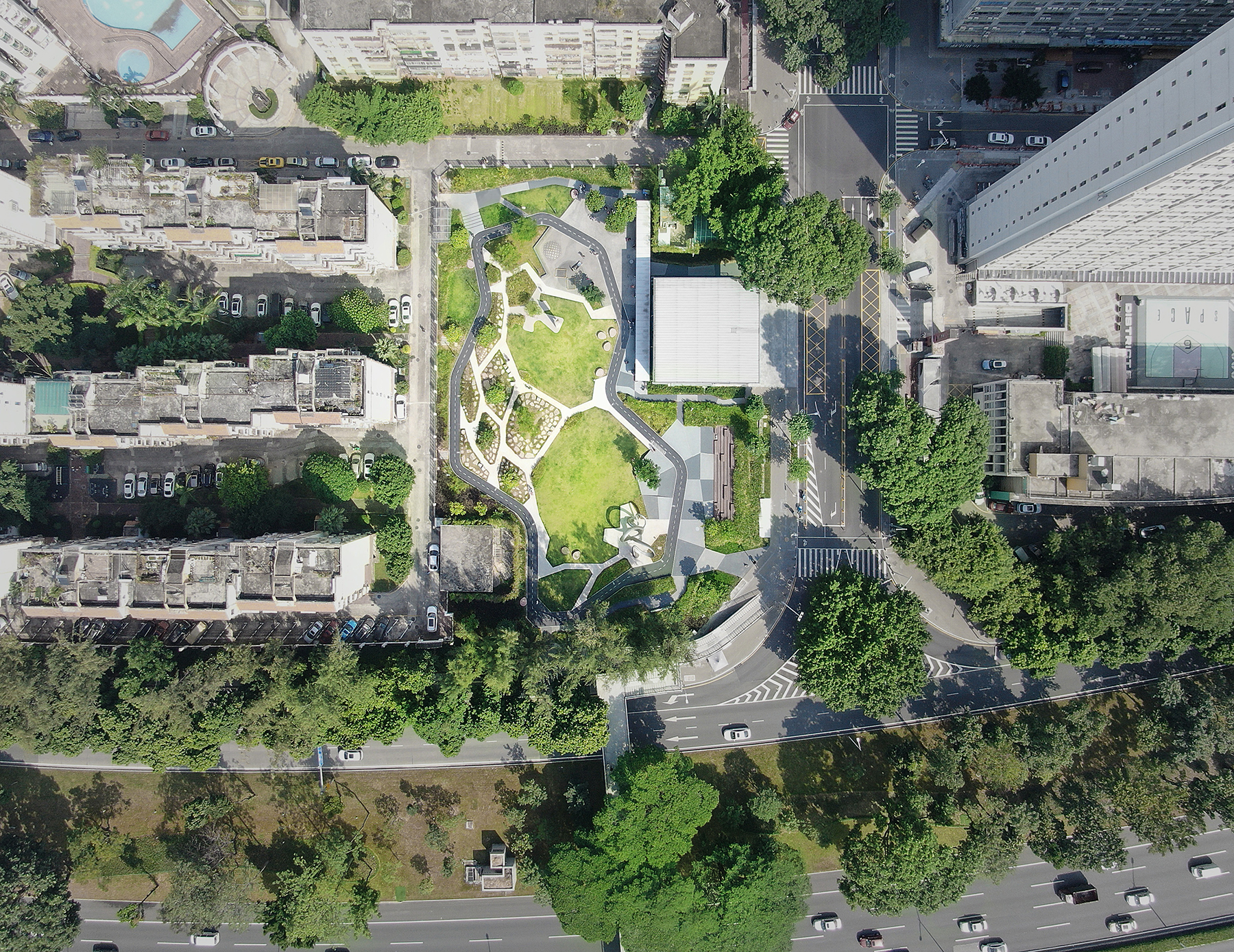
设计策略
设计以“开放、生态、多元”为原则,对场地及周边进行系统梳理:拆除围墙,打开公园的边界,建立公园与城市街道、小区的可达性;砸掉现状钢筋水泥地,让土地重新呼吸,建立生态的景观基底;完善公园路网及基础服务设施,考虑周边使用人群,设置儿童游戏场地、阶梯广场、文化展示长廊和慢跑道等多元的休憩娱乐场所,将场地变为安全舒适的社区公园,让原本封闭的荒废地转变为活化周边社区的城市公园。
The design of the park is based on the principle of "openness, ecology, and diversity". The site and its surroundings are systematically sorted out, the walls are removed to open the boundaries of the park, and the park’s accessibility to urban streets and communities is established; the existing reinforced concrete floor is destroyed to make the land Re-breath and establish an ecological landscape base; improve the park’s road network and basic service facilities, and consider the surrounding users to set up multiple recreational and entertainment venues such as children’s play grounds, stepped squares, cultural display corridors and jogging tracks to make the venues safe and comfortable The community park in the city turns the originally enclosed wasteland into an urban park that revitalizes the surrounding communities.
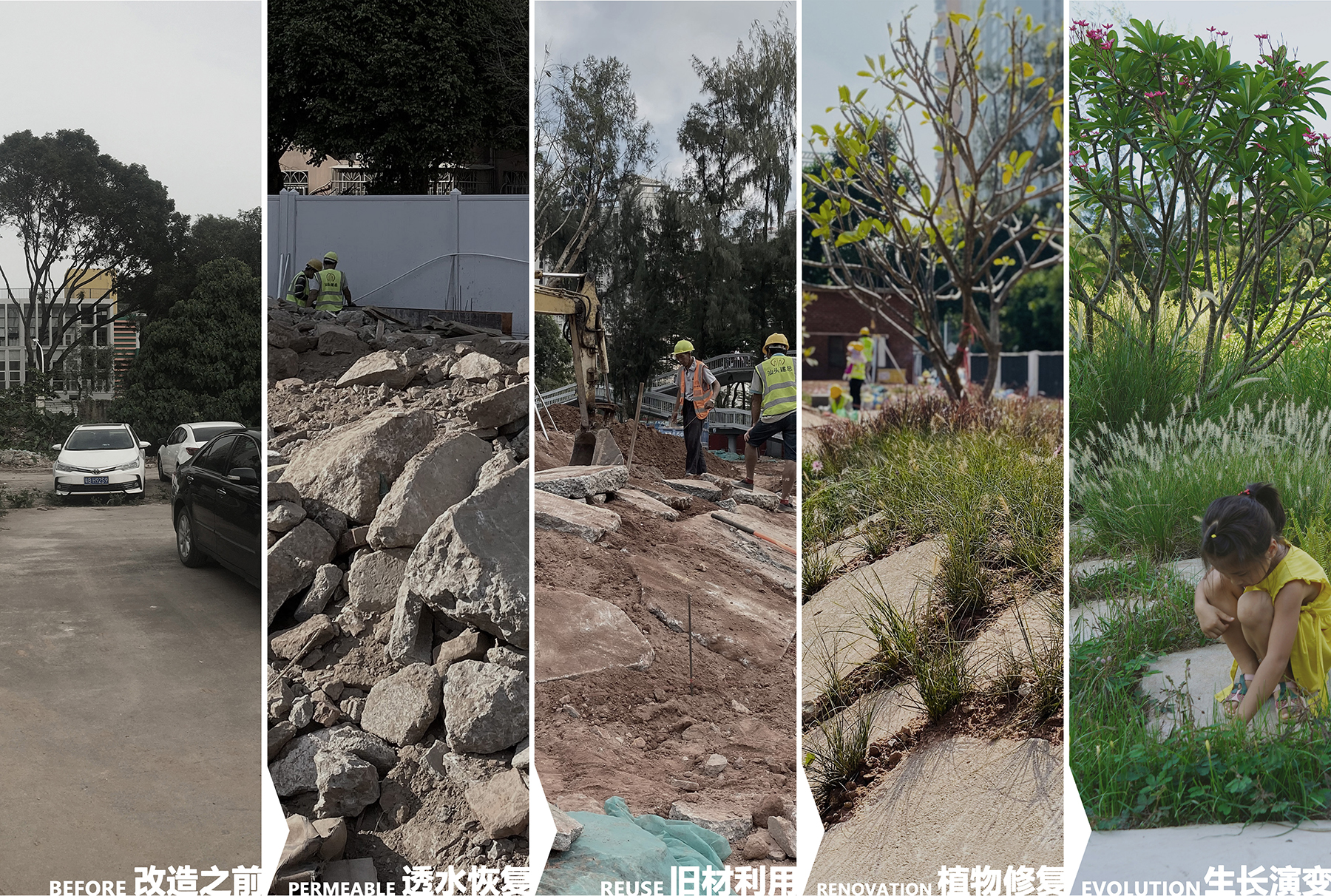
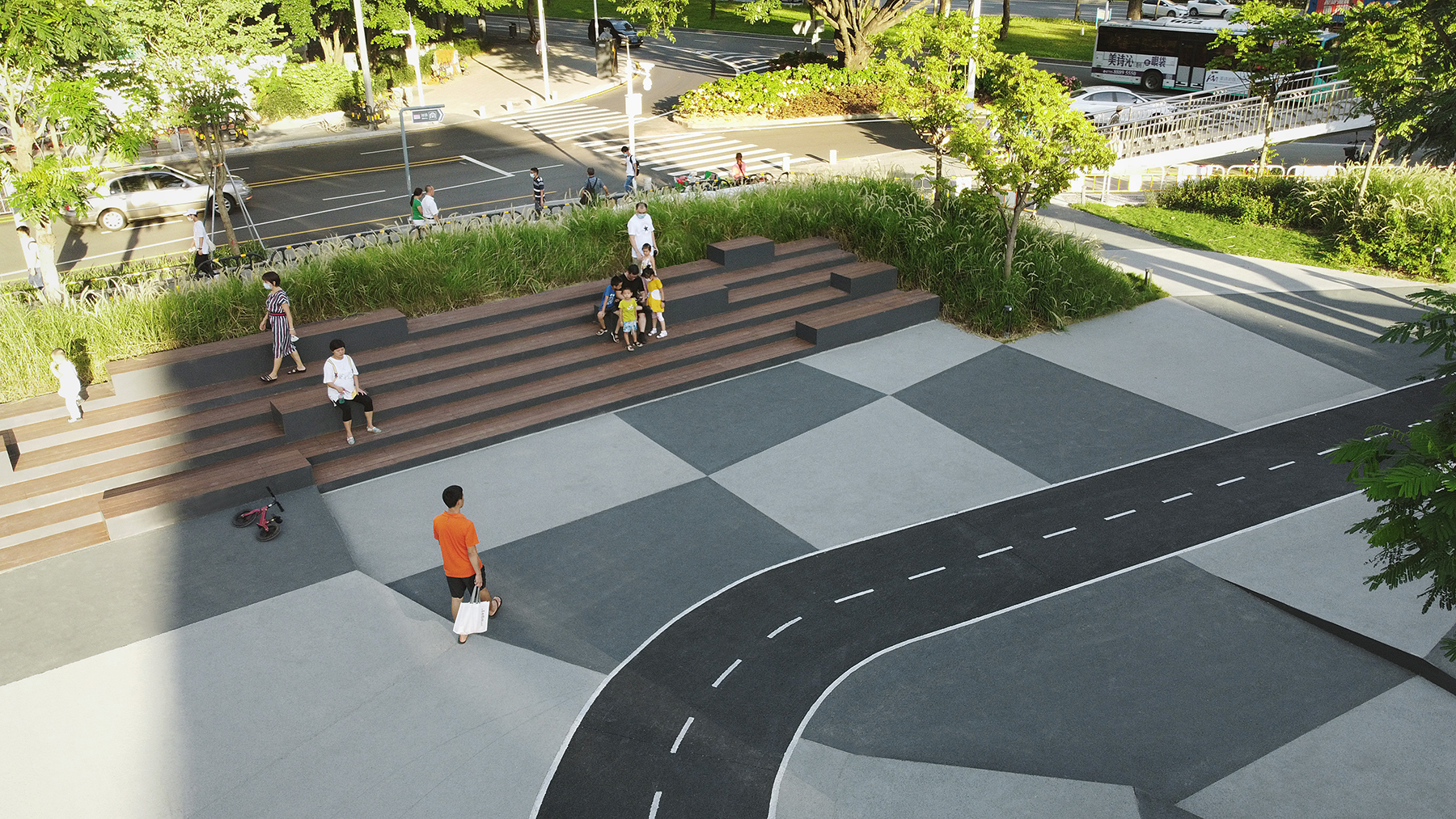
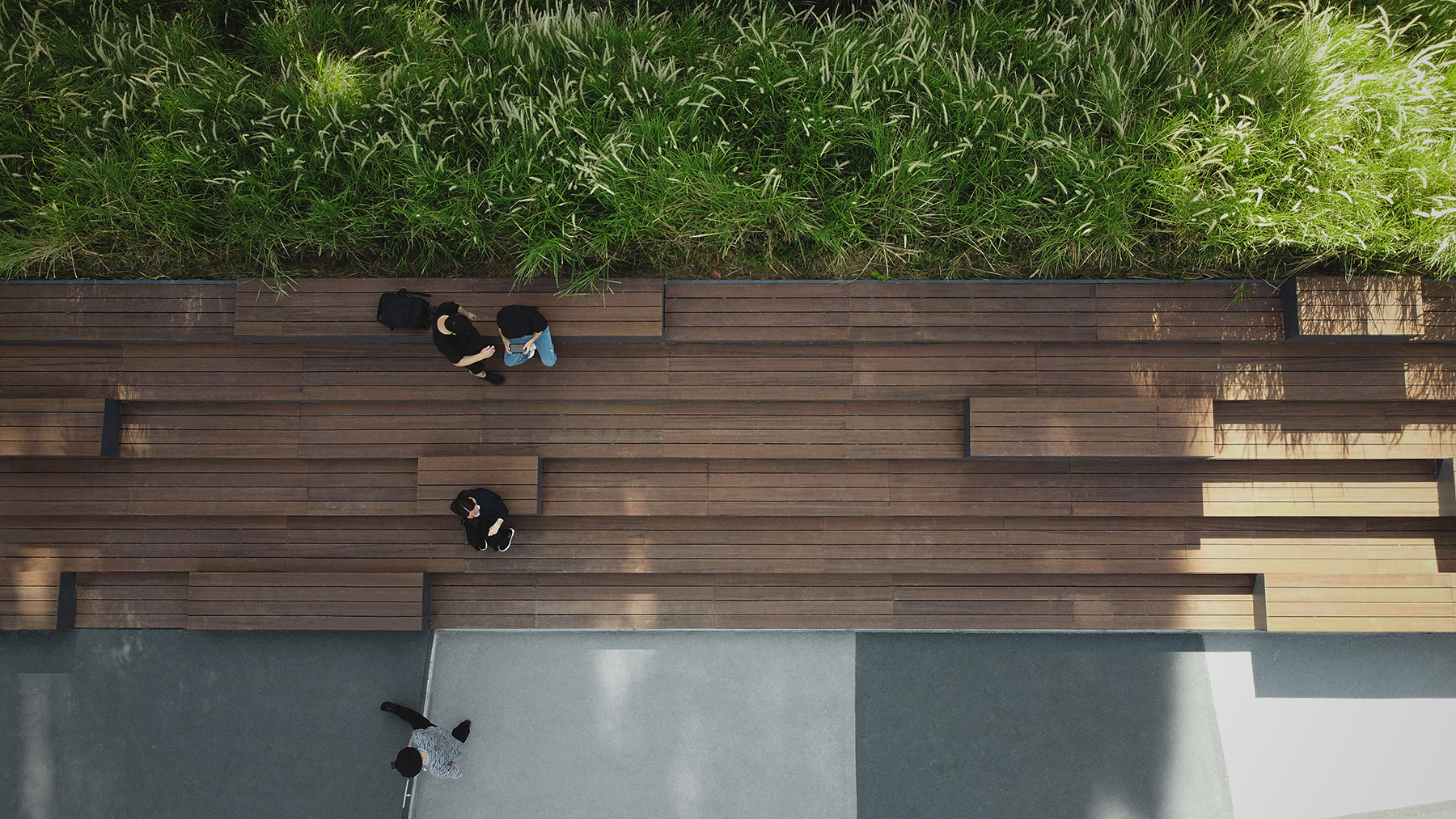
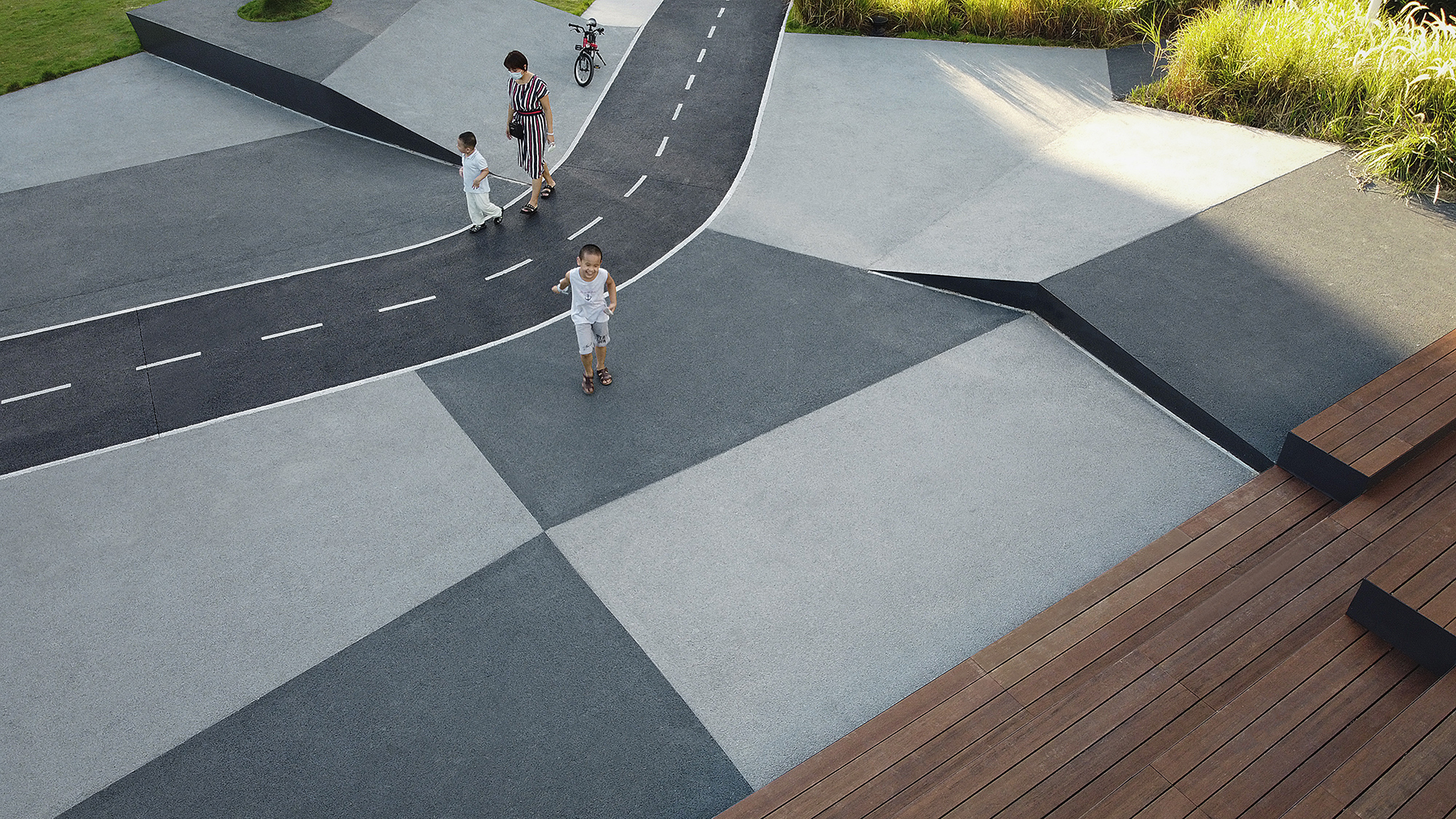
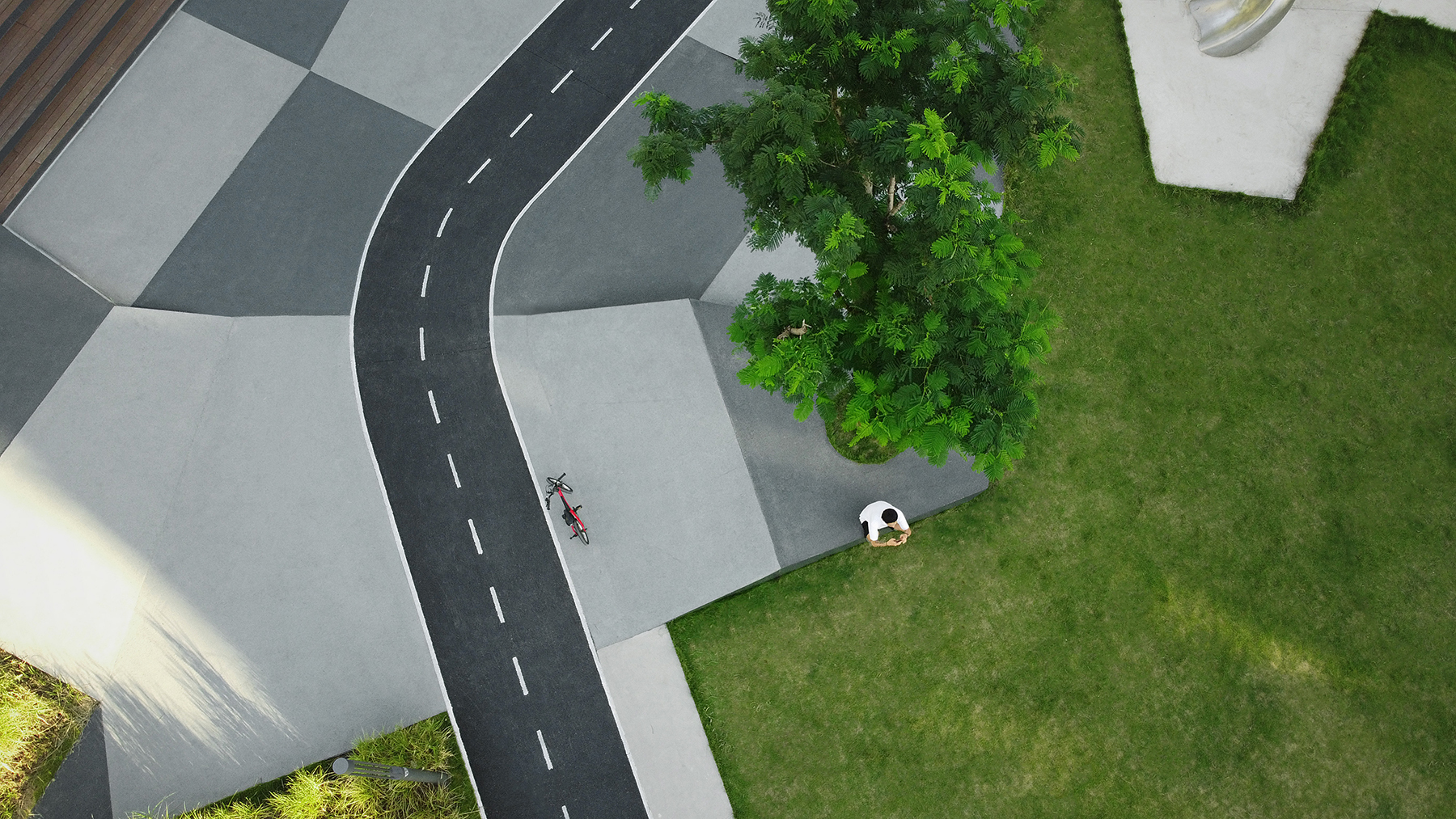
重新呼吸的土地
原始单纯的硬地面没有办法实现多样性的基础,所以设计的第一步是砸掉水泥地,重新让土地呼吸,才能建立新的生态系统。设计利用碎裂的混凝土块进行微地形塑造,形成一处裂缝花园,旧的混凝土块与缝隙中的植物形成和谐的共生关系。自然野趣的裂缝花园也成为小孩玩耍、追逐的游乐场。
The current situation of pure hard ground cannot achieve the foundation of diversity, so the first step is to smash the concrete floor and let the land breathe again to build a new ecosystem. Using broken concrete blocks to create micro-topography into a cracked garden, the old concrete blocks and the plants in the cracks form a harmonious symbiosis. The natural and wild cracked garden has also become a playground for children to play and chase.
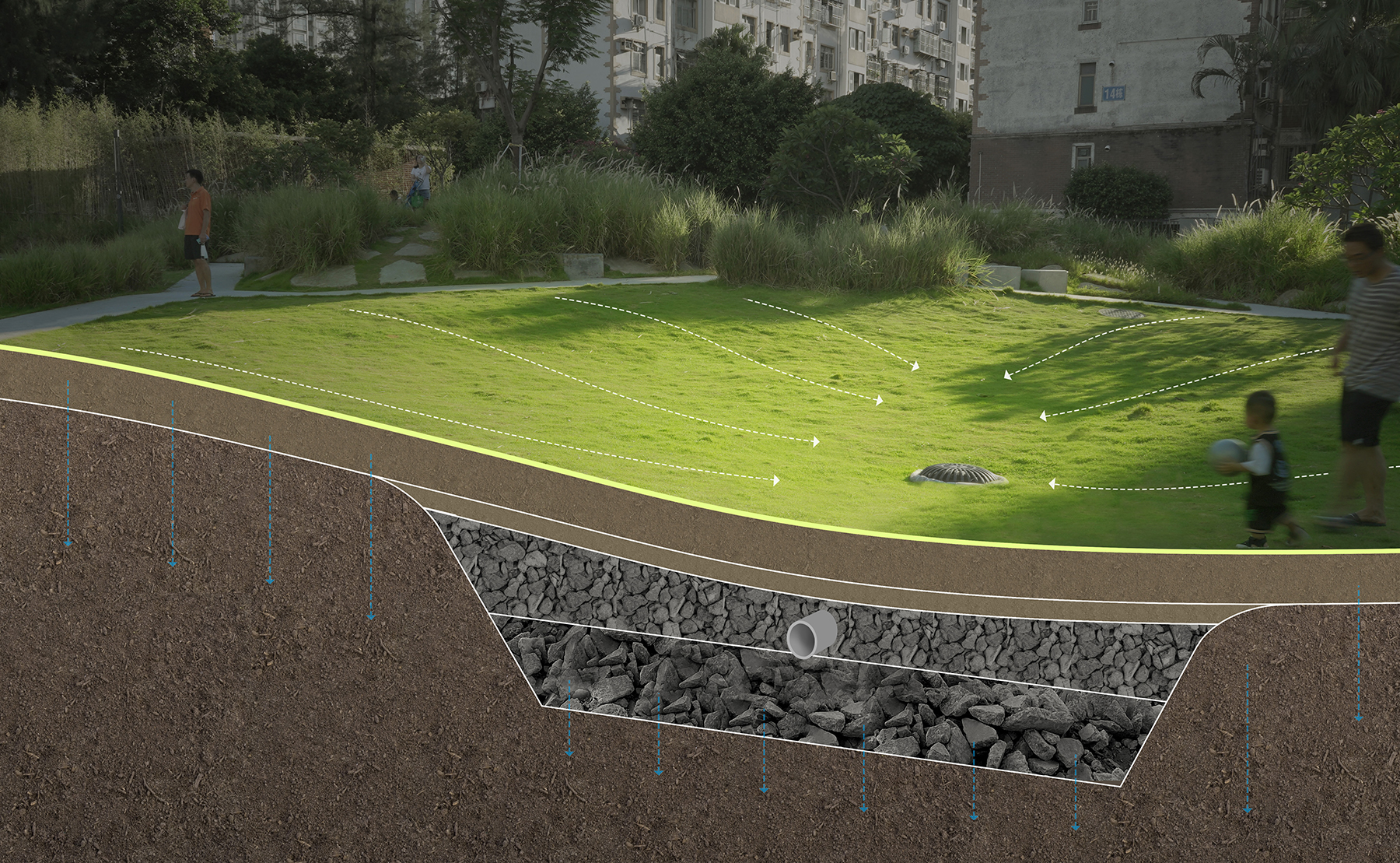
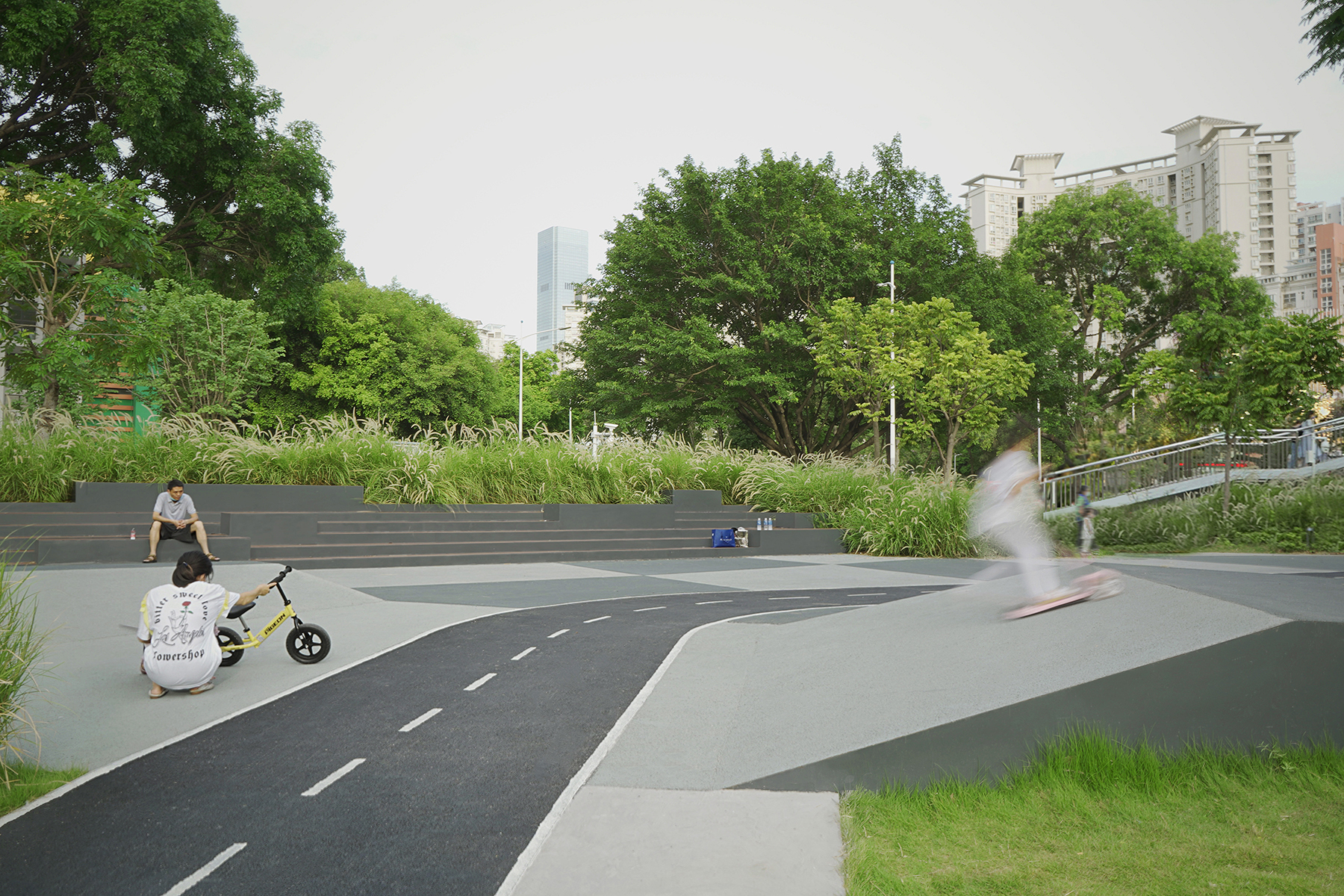
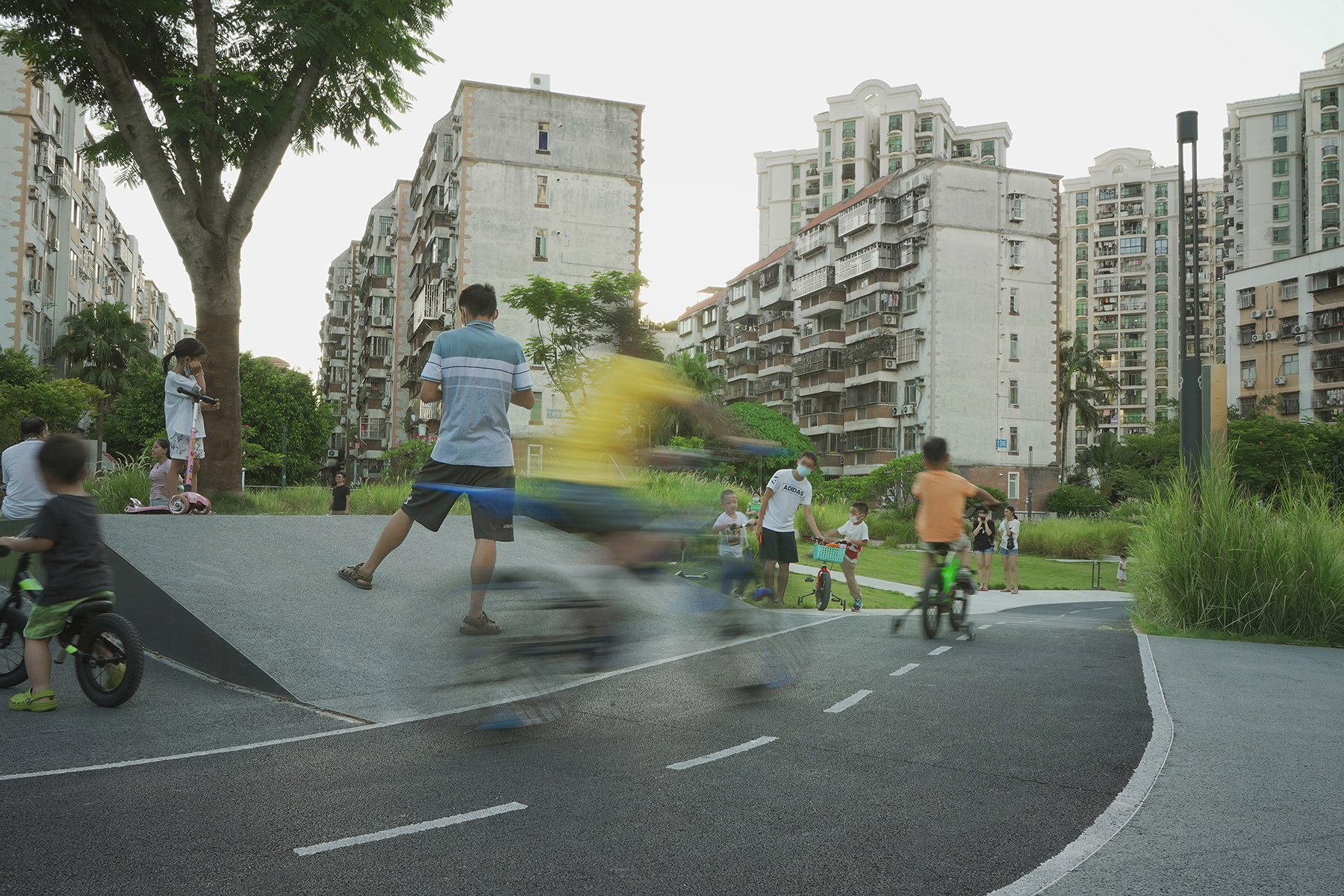
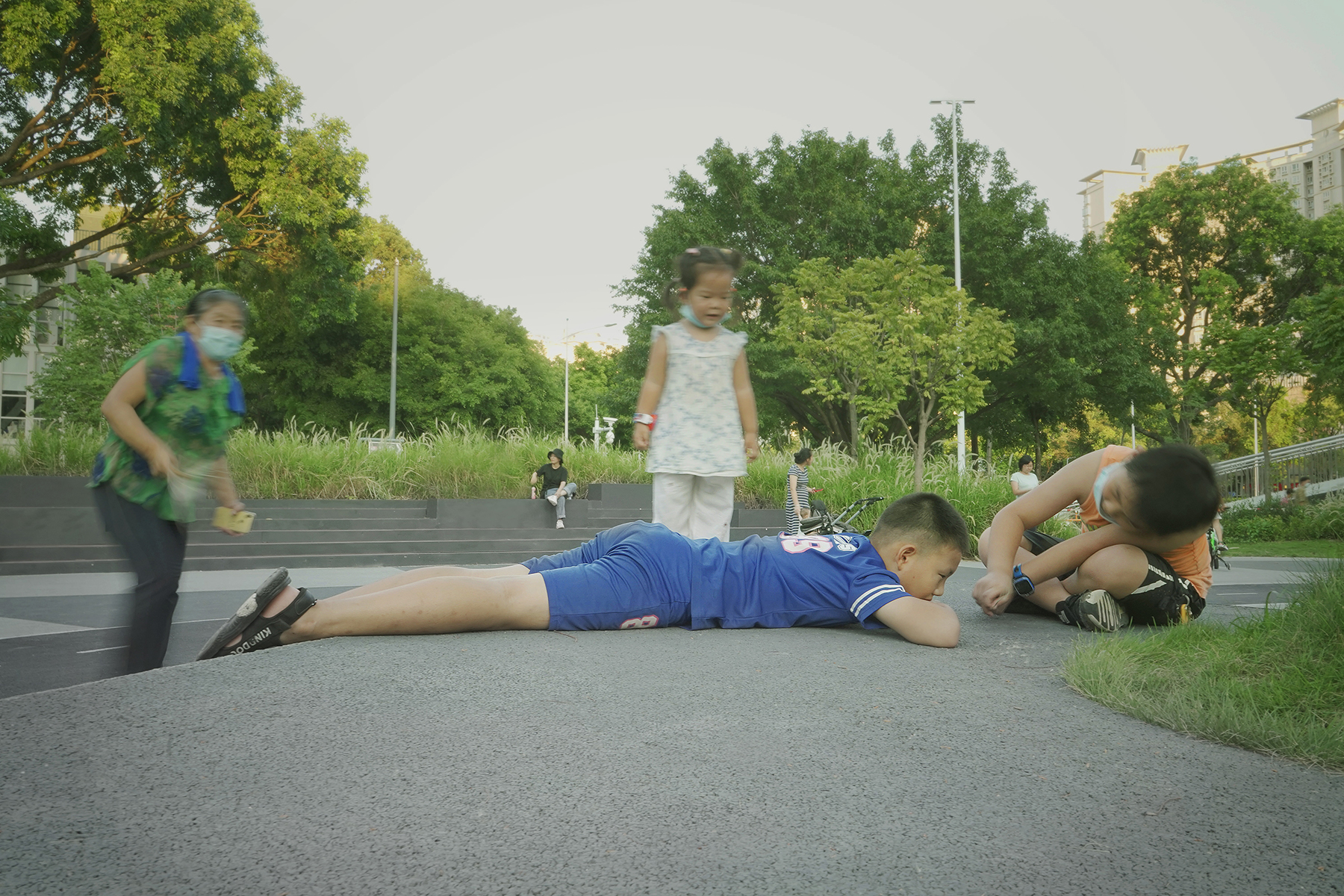
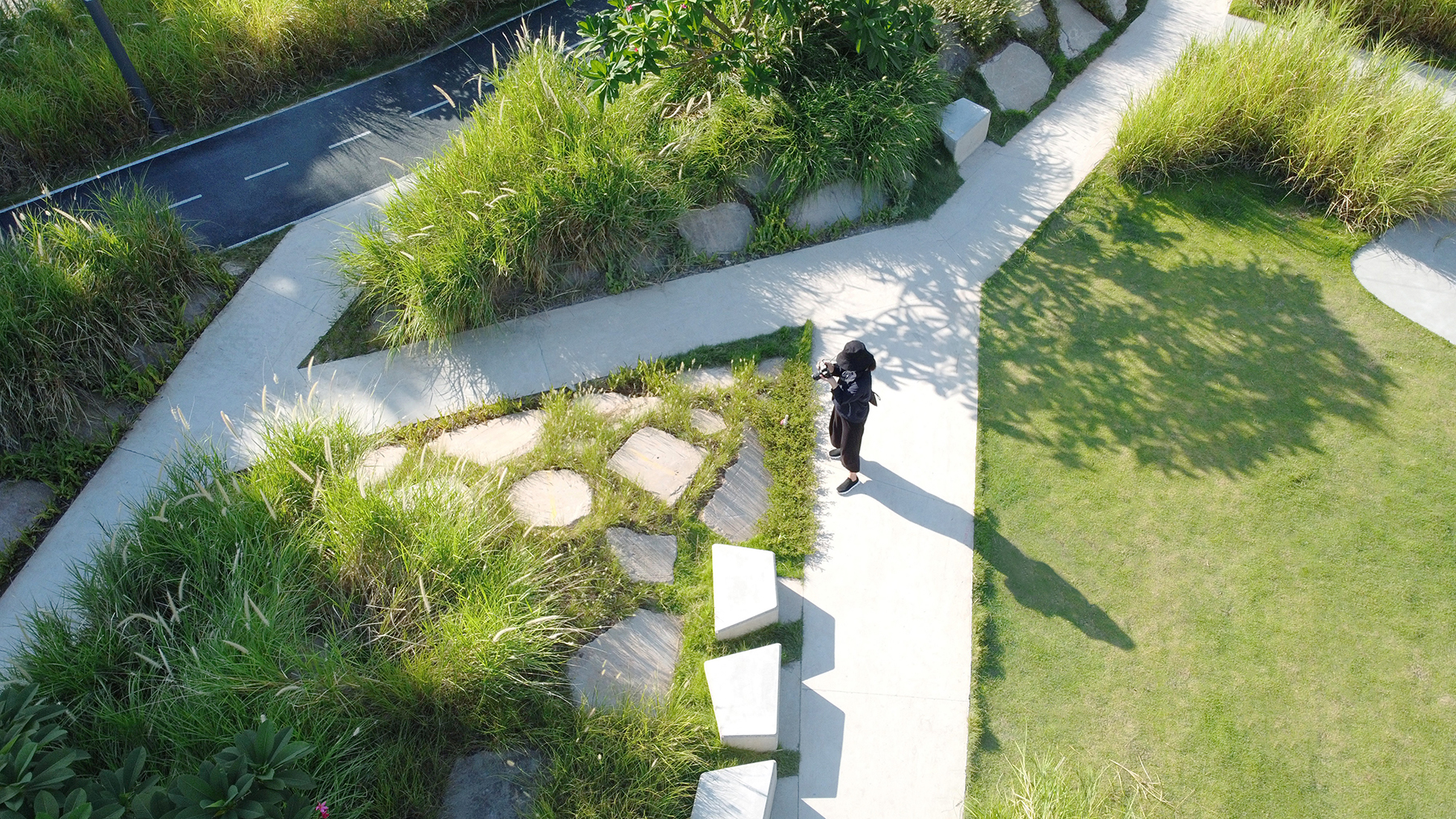
低成本的景观
项目由于工期短、造价低,所以区别于传统市政公园大面积石材铺贴和大量大规格的苗木等做法,设计师转而采用低成本低维护的策略进行设计和建造。被砸碎的旧混凝土块成为新的景观材料,堆砌成微地形裂缝花园;小的碎块被用作填充石笼的材料;更小的碎块则作为海绵城市技术措施的地下碎石层,以疏导下渗的雨水。在植物设计上,设计师选用规格较小的本土乔木树种,让其自然生长。底层植物选用低维护需求的观赏草和野花进行自然种植。
Due to the short construction period and low cost, this project is different from the large-area stone paving and large-scale seedlings in traditional municipal parks. It adopts low-cost and low-maintenance strategies for design and construction. The smashed old concrete blocks are used as landscape materials and stacked to form a micro-topographic crack garden; small fragments are used as materials for filling stone cages; smaller fragments are used as underground gravel layers for sponge city technical measures to drain Seepage rainwater. In terms of plant design, local tree species with smaller specifications are selected for natural growth. Low-maintenance ornamental grasses and wildflowers are selected for natural planting of bottom plants.
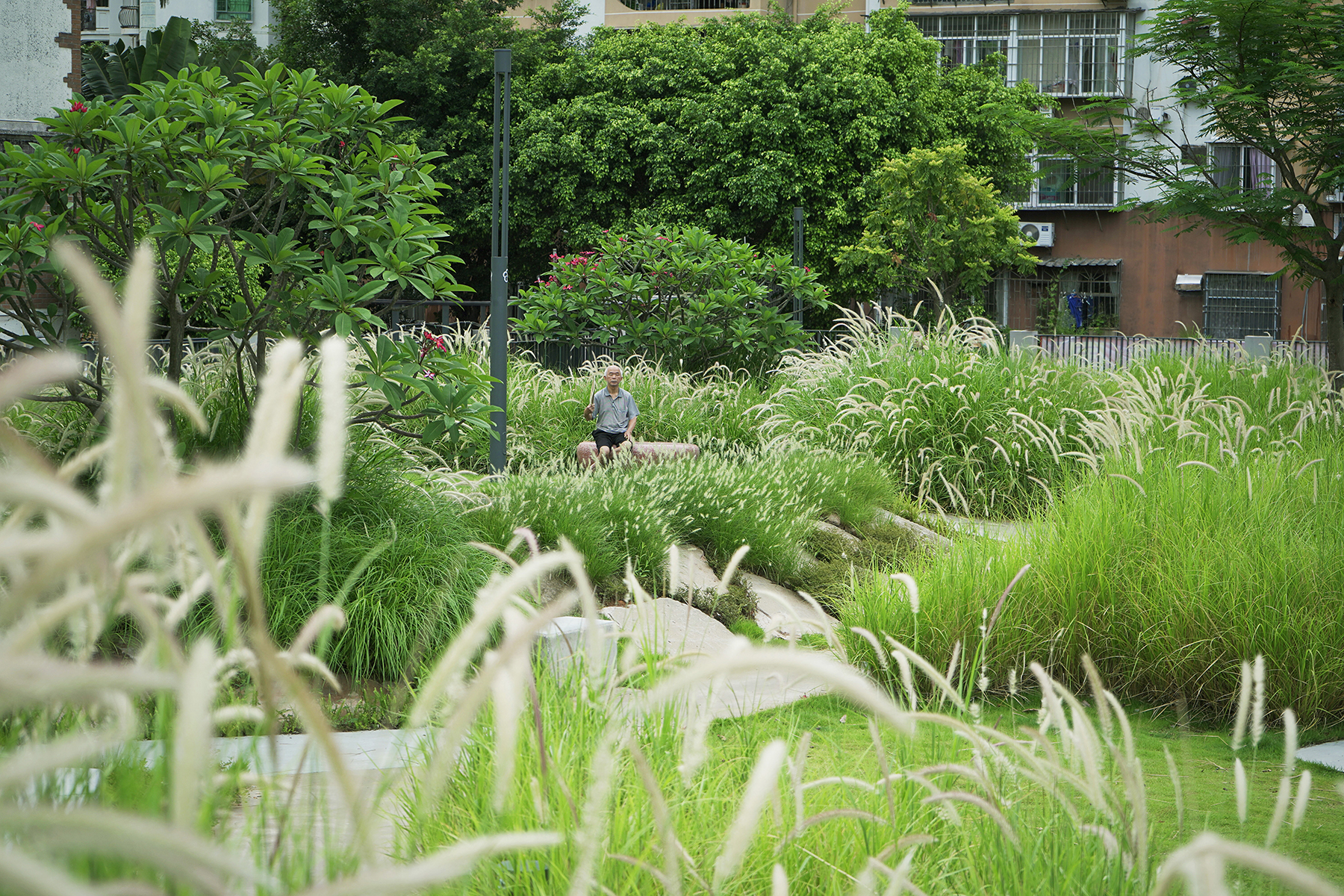
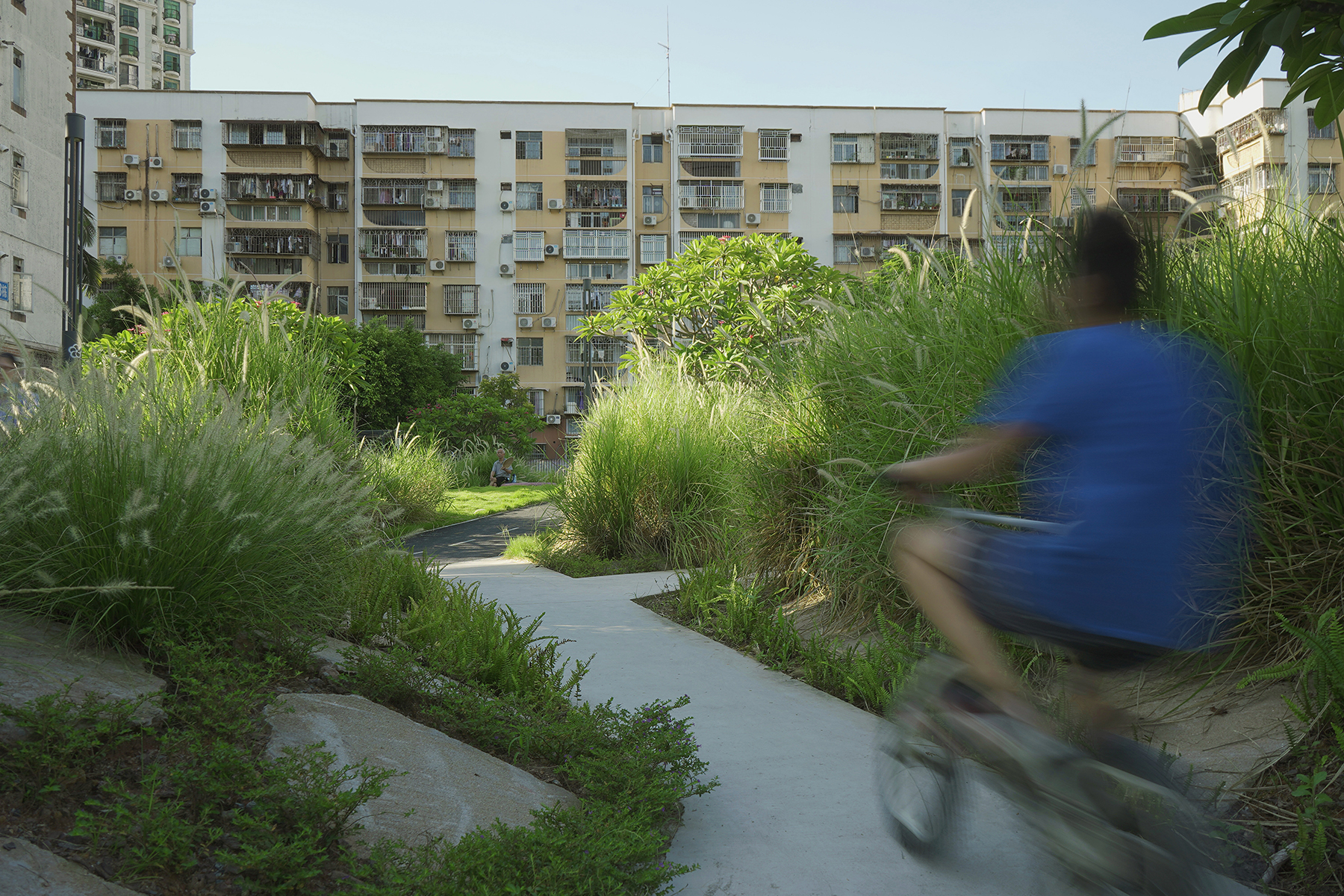
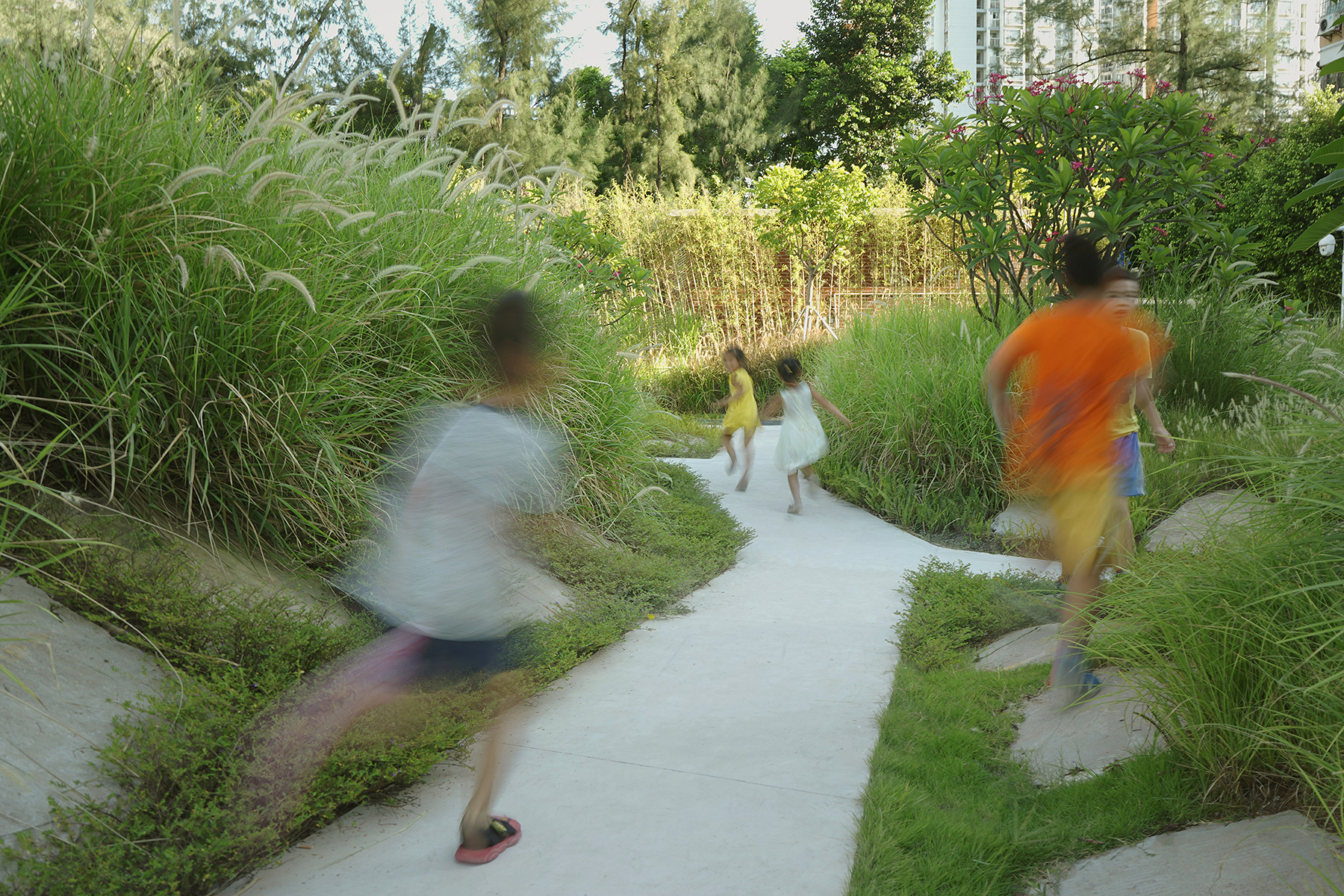
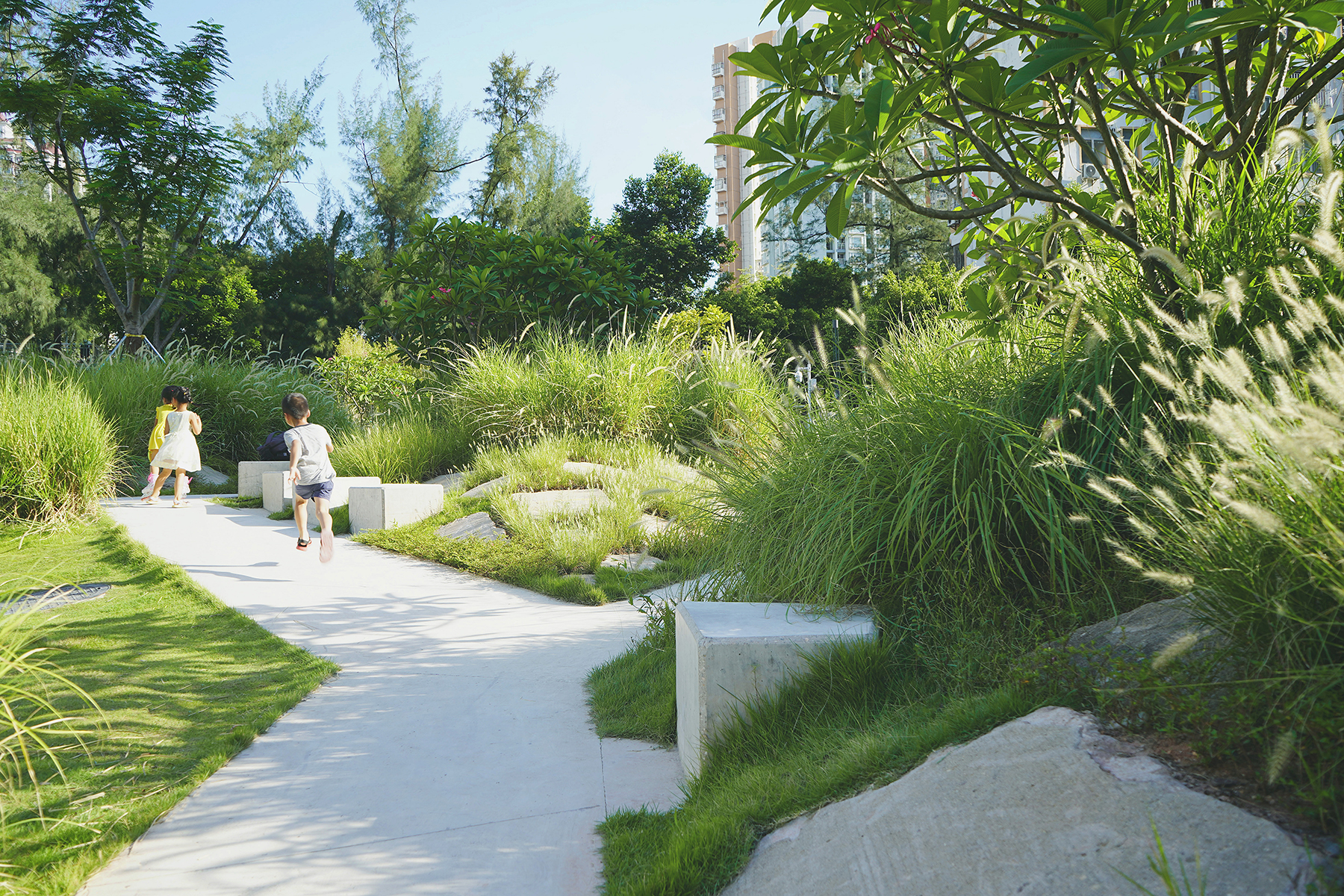
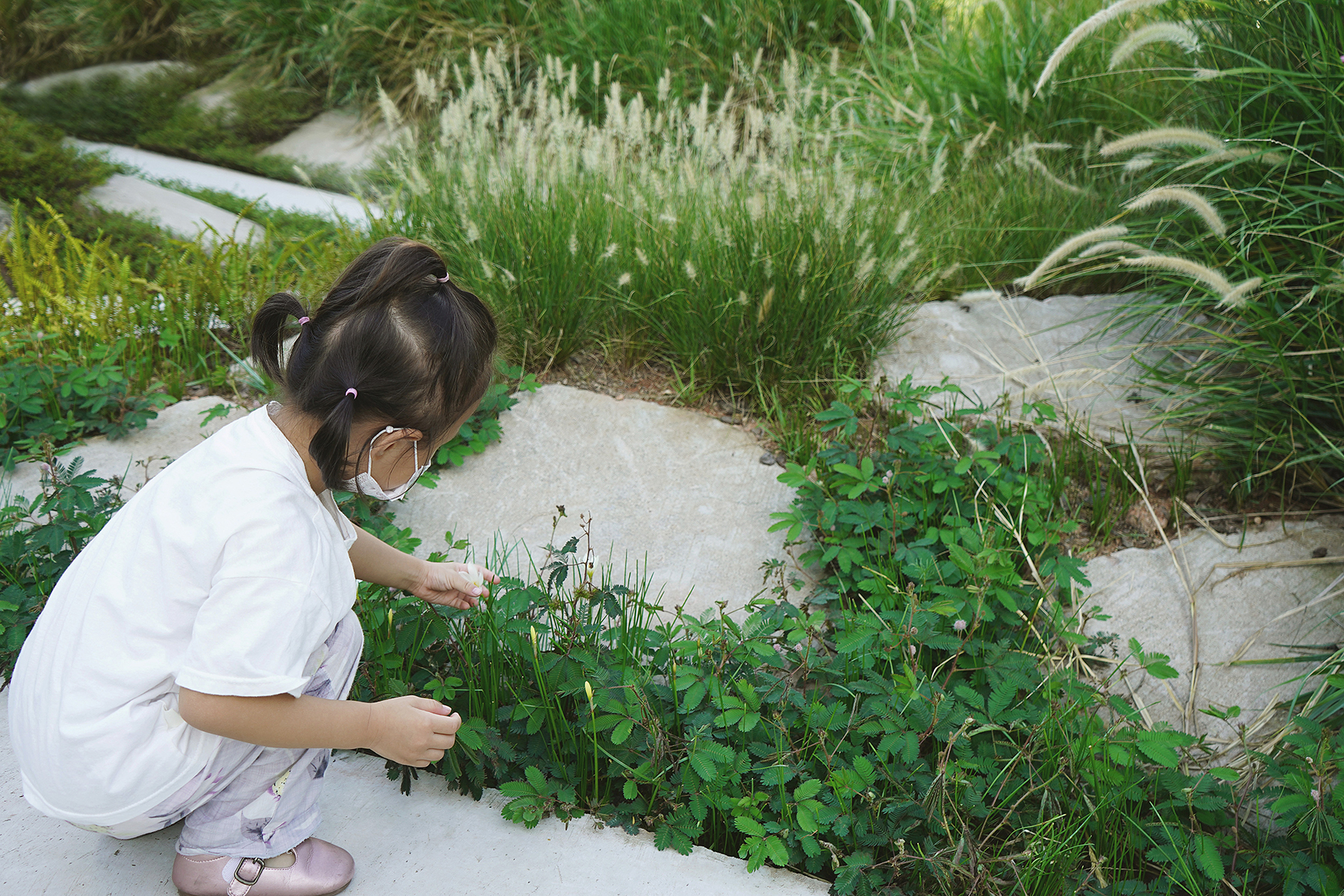
激活社区公共行为多样性
场地改造之前,这里曾是一个无人问津的荒废地块,每天都有川流不息的车流和人流从周围经过,在边界封闭时,这里未曾出现过公共活动。改造后,开放的边界引导周边居民和路人进入公园活动,提供社交、休息、亲子、锻炼、玩耍的空间,还将不定期举办的各类活动,而公园的开放与包容的氛围,也让每个参与者都能平等地享受安静与休憩的机会。
Before the site was renovated, it was a deserted land that no one cares about. A constant flow of cars and people pass by every day, and there were no public activities when the border was closed. After the renovation, the open boundary guides surrounding residents and passers-by into the park activities, which provide social, rest, parent-child, exercise, play, and various activities held from time to time. The openness and tolerance of the park allows everyone to be equal The opportunity to enjoy quiet and rest.
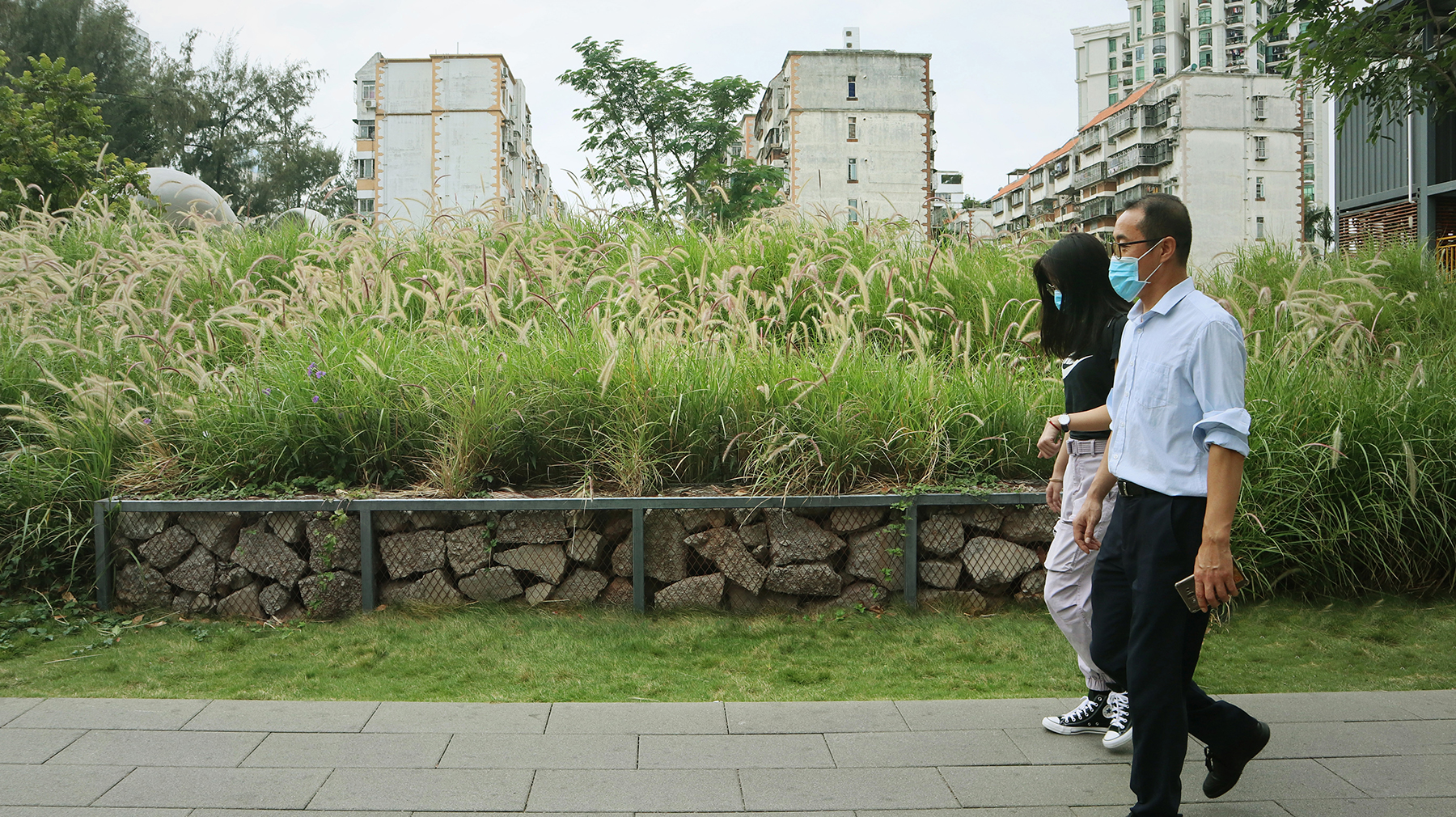
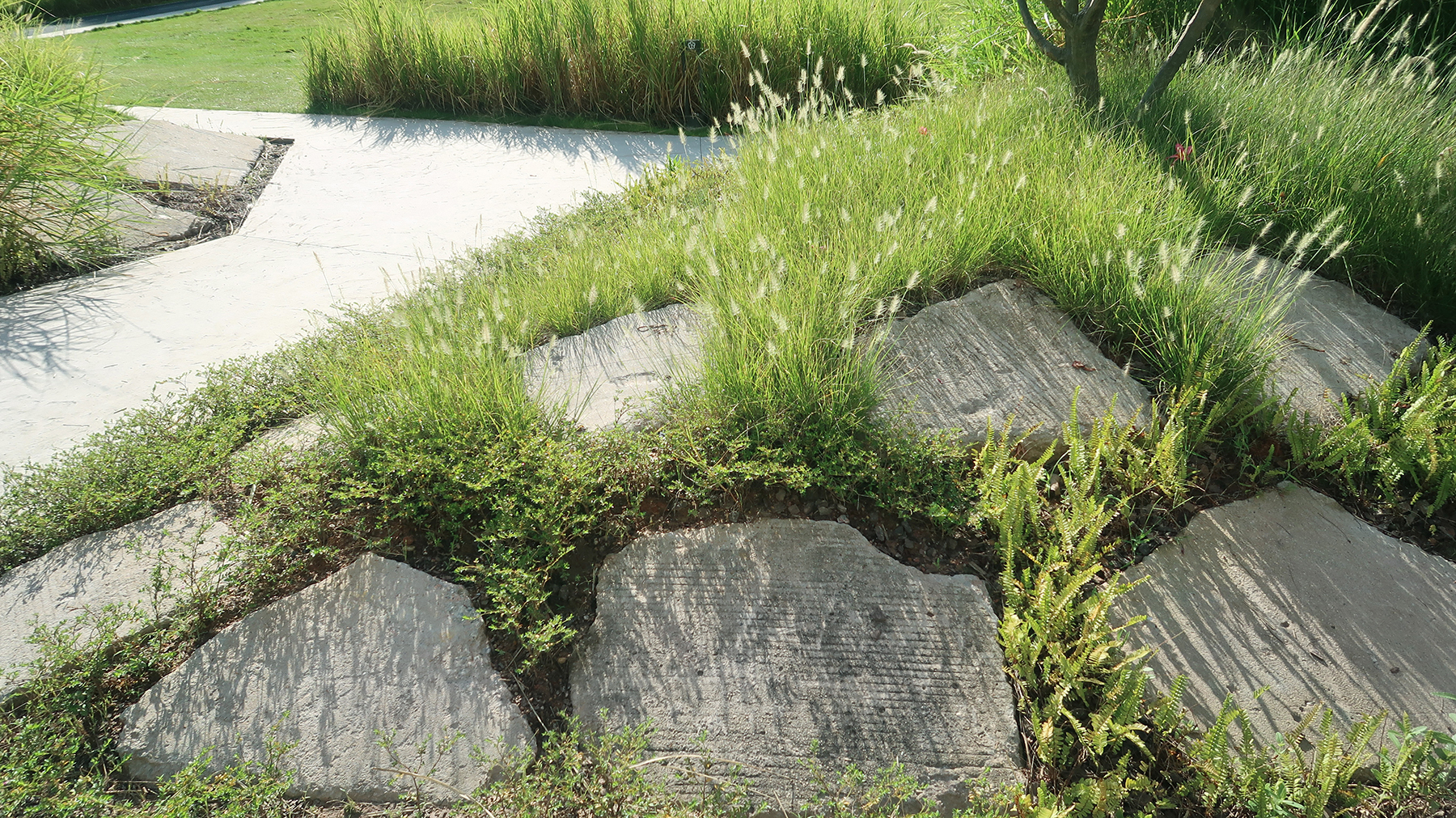

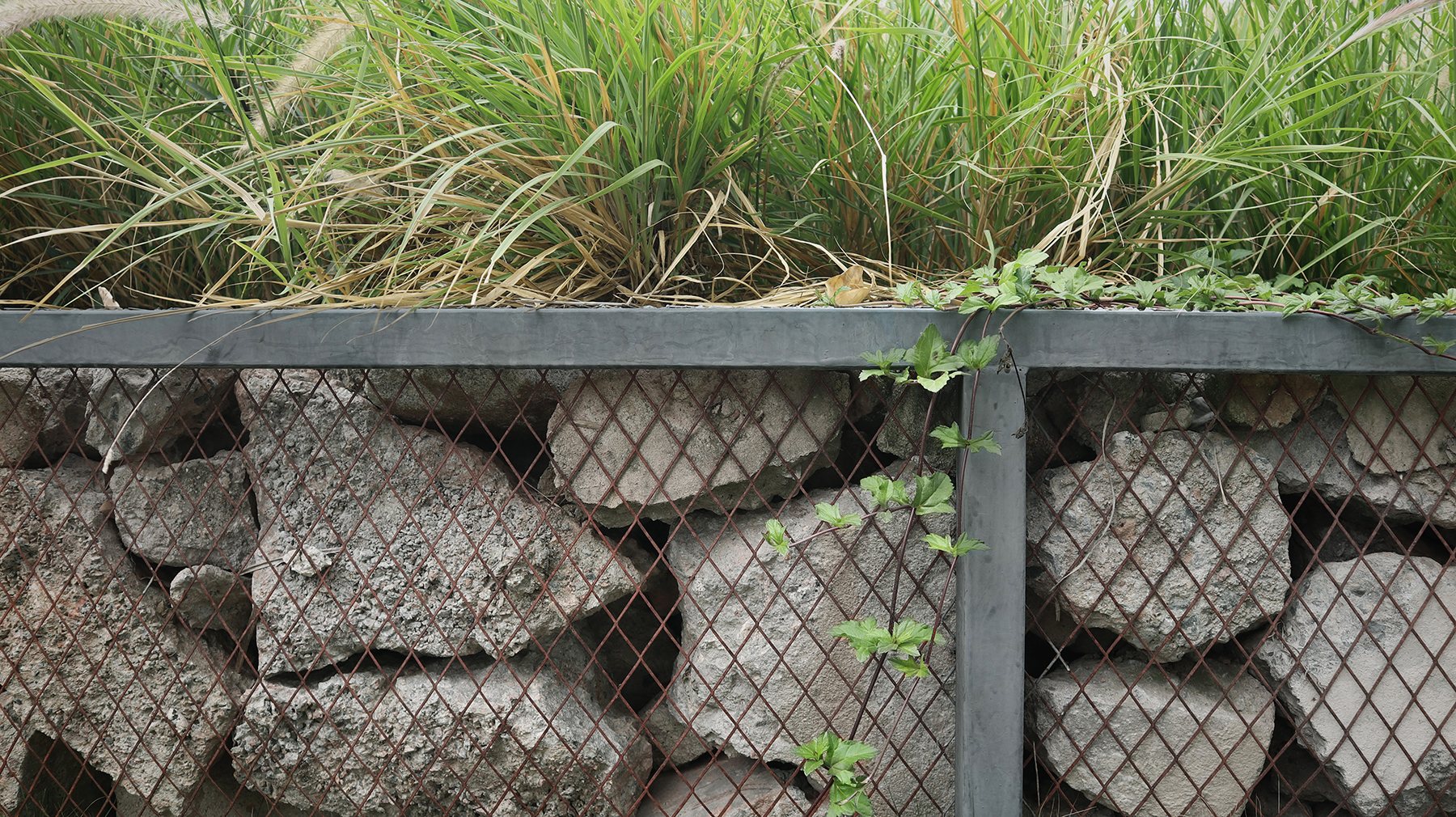
简·雅各布斯说过,“多样性是城市的天性”,设计师希望公园成为高密度社区中的活化器,让这里充满生气与活力,同时激发出各种各样的公共活动。
Jane Jacobs said, "Diversity is the nature of the city." We hope that the park will become an activator in the high-density community, which will be full of vitality and vitality, and at the same time stimulate a variety of public behaviors and activities.
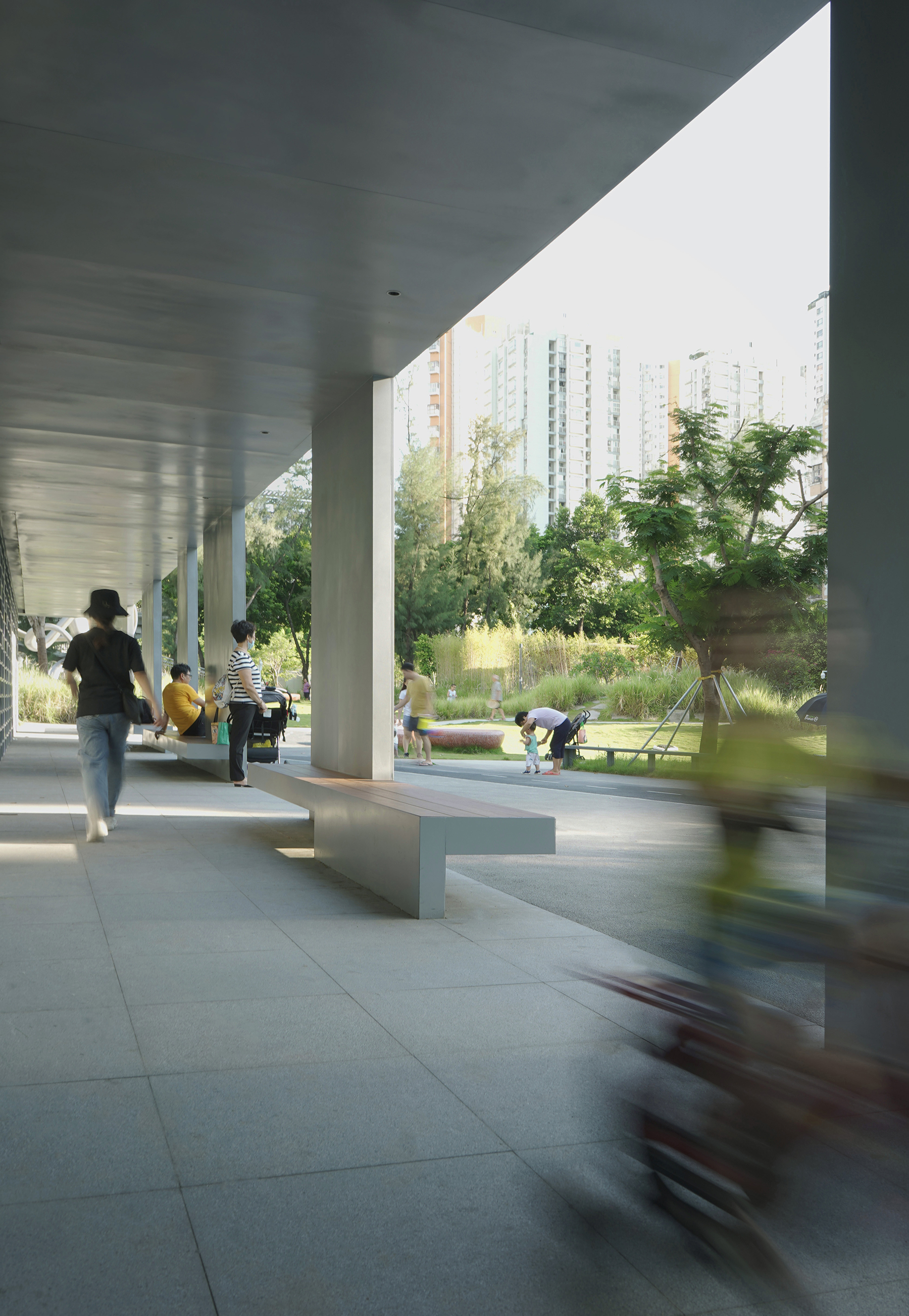
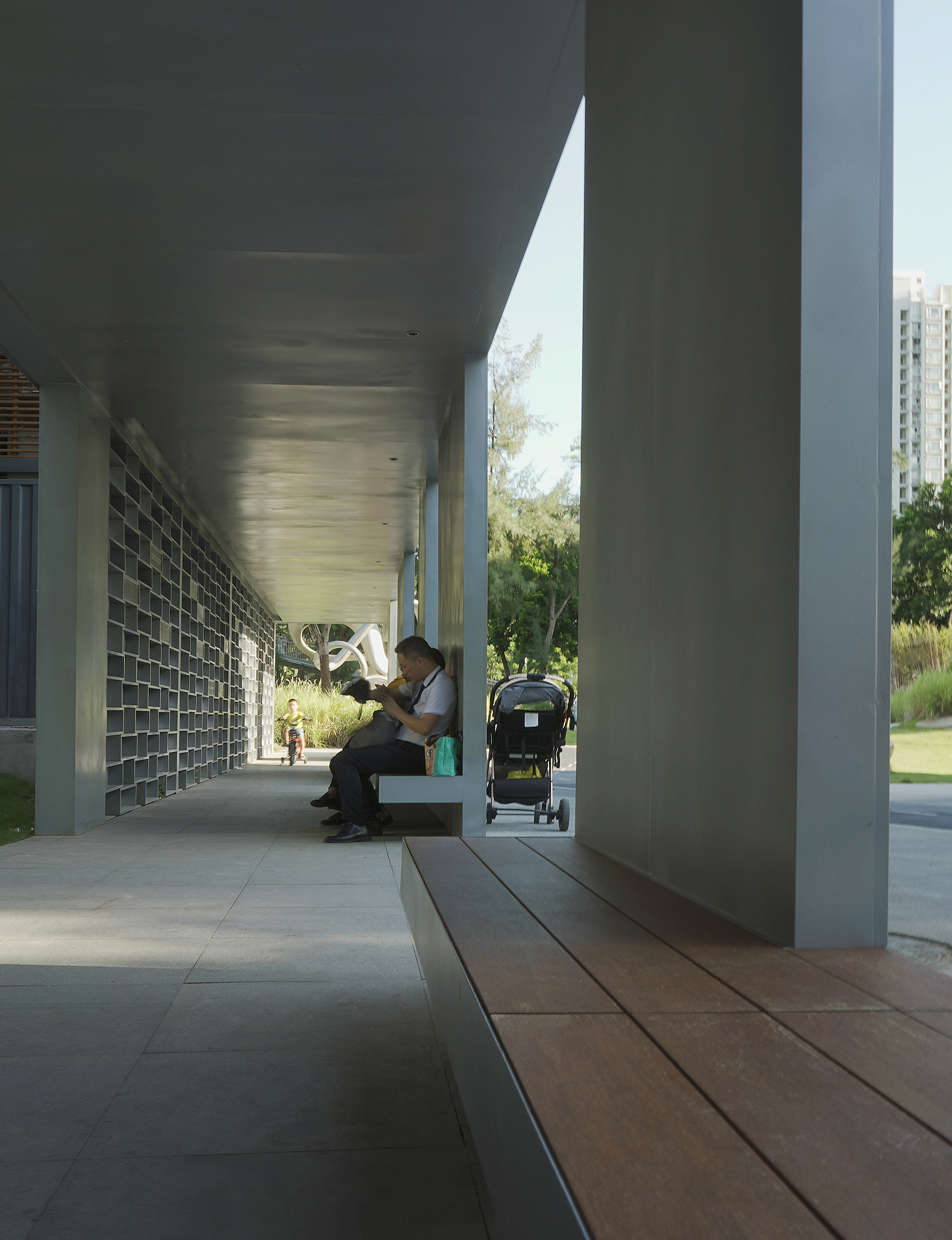

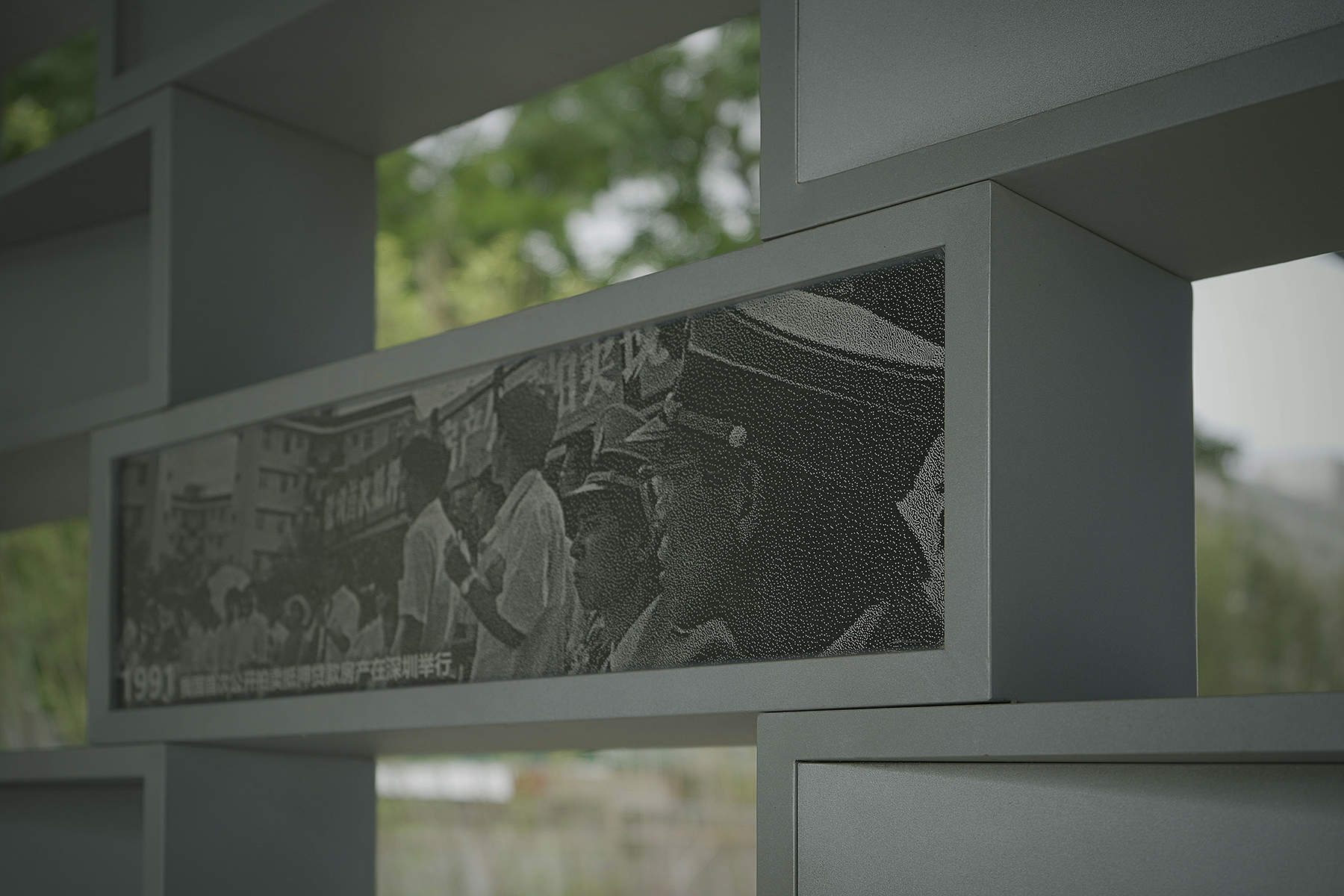
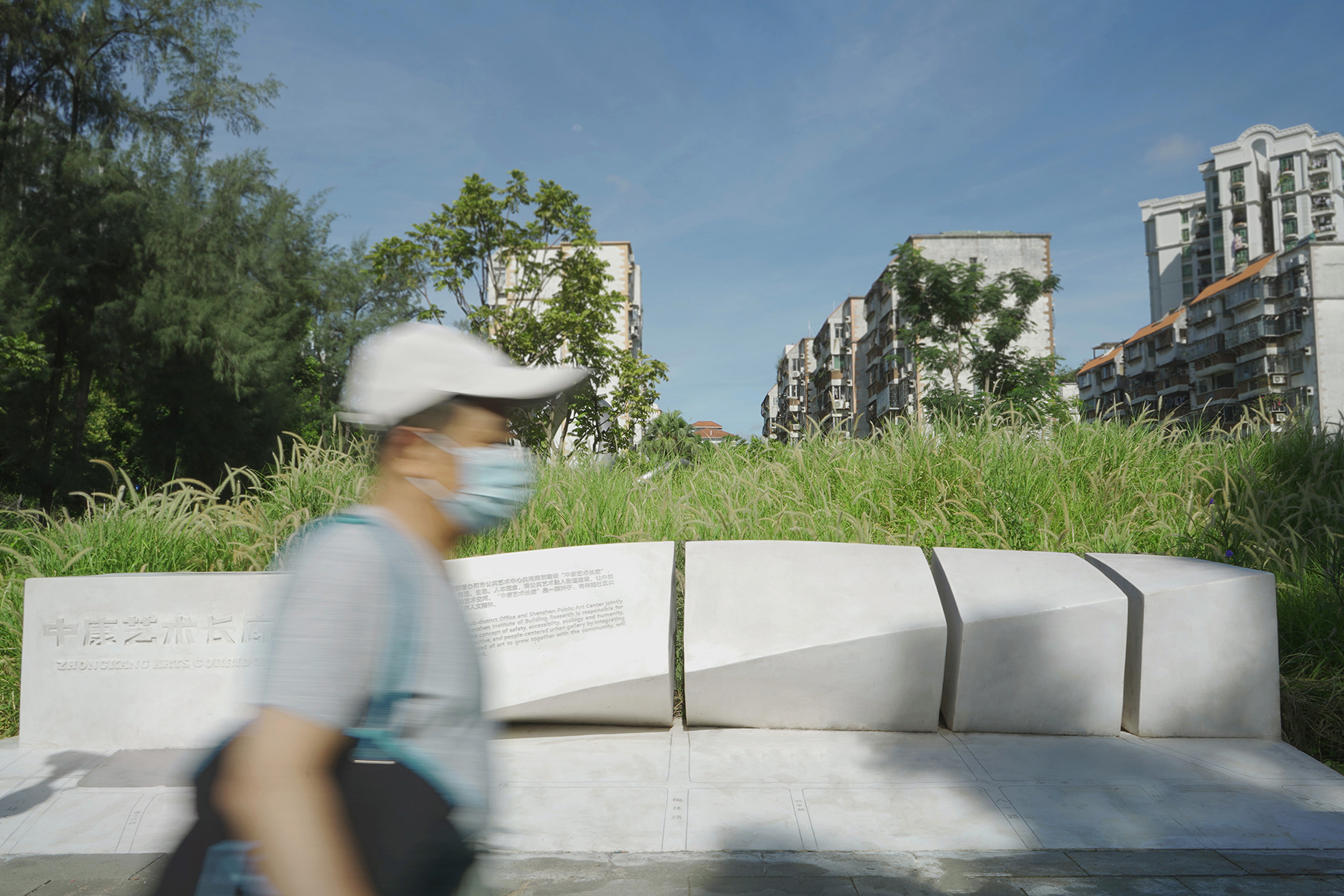
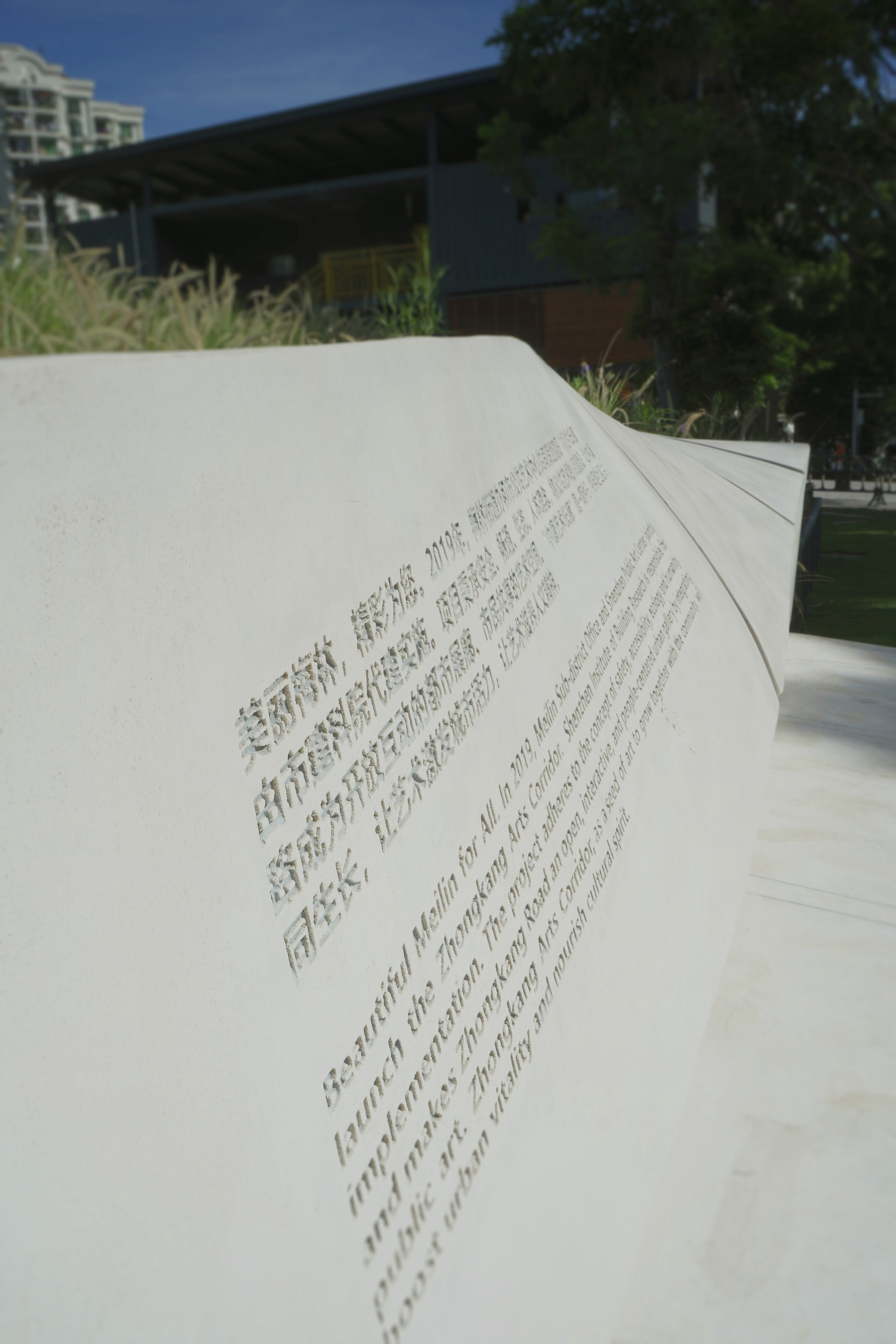
完整项目信息
项目名称:深圳梅丰社区公园
项目类型:景观
项目地点:广东省深圳市福田区
设计单位:自组空间
主创建筑师: 黄丹霞、梁瑞华
设计团队:黄丹霞、梁瑞华、杜梦碧
业主:深圳市福田区梅林街道办
造价:150万元
设计时间:2019年4月
建成时间:2020年1月
项目面积:4674.35平方米
项目策划:深圳市城市设计促进中心
策划团队人员:刘磊、刘雅、叶颖
代建单位:深圳市建筑科学研究院股份有限公司
艺术策划:深圳市公共艺术中心(深圳雕塑院)
雕塑装置及艺术家:吕晓正(寻梅)、卢远良(见证)、刘国栋(花开花落)
摄影:梁瑞华
版权声明:本文由自组空间授权发布,欢迎转发,禁止以有方编辑版本转载。
投稿邮箱:media@archiposition.com
上一篇:源计划新作:高明对川茶庄园重建,积石为台、立竹为亭
下一篇:新作 | 华东师范大学第二附属中学前滩学校及冰厂田前滩幼儿园 / 致正建筑工作室+大正建筑事务所